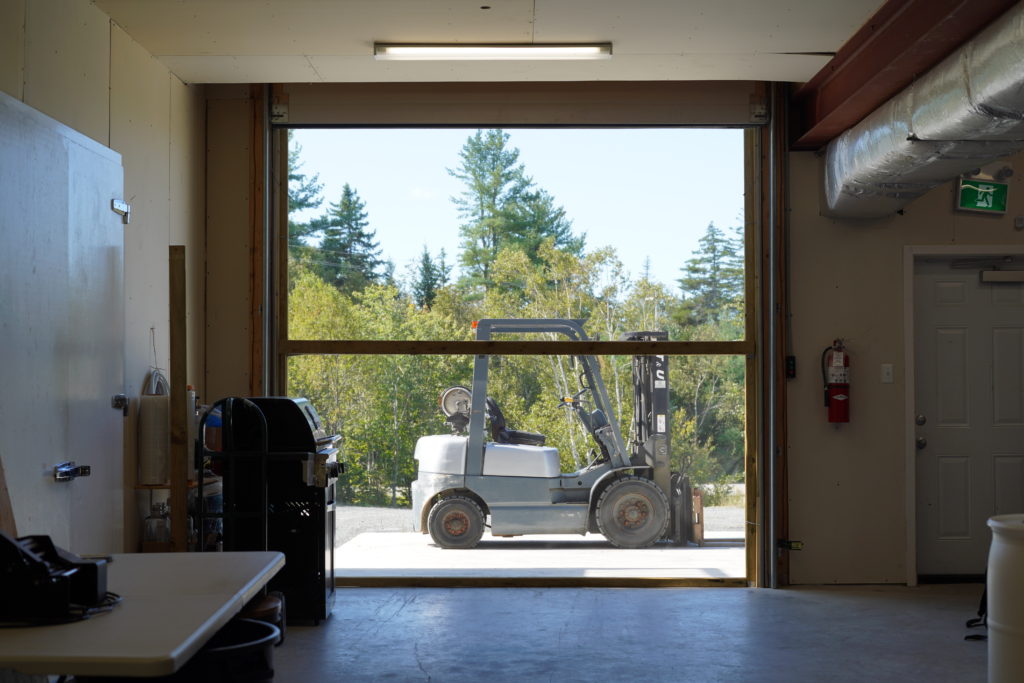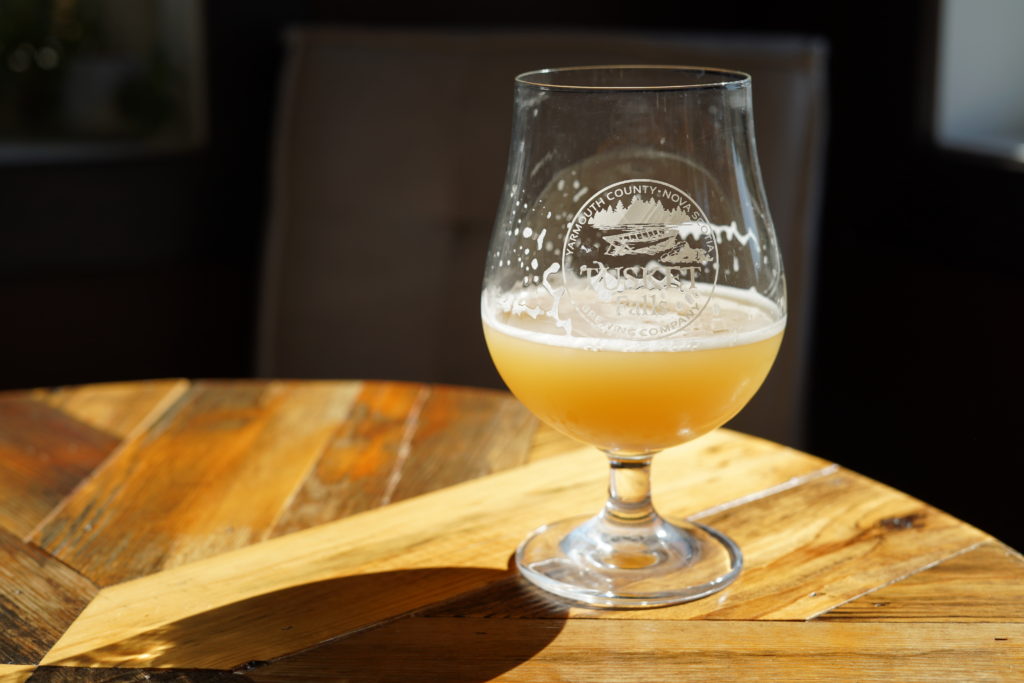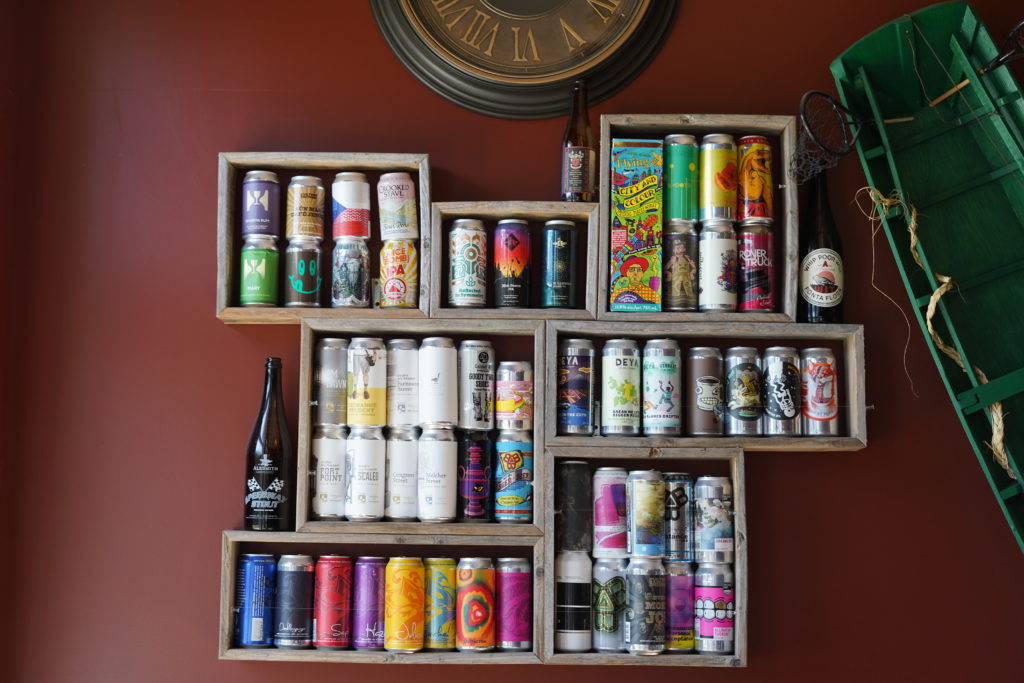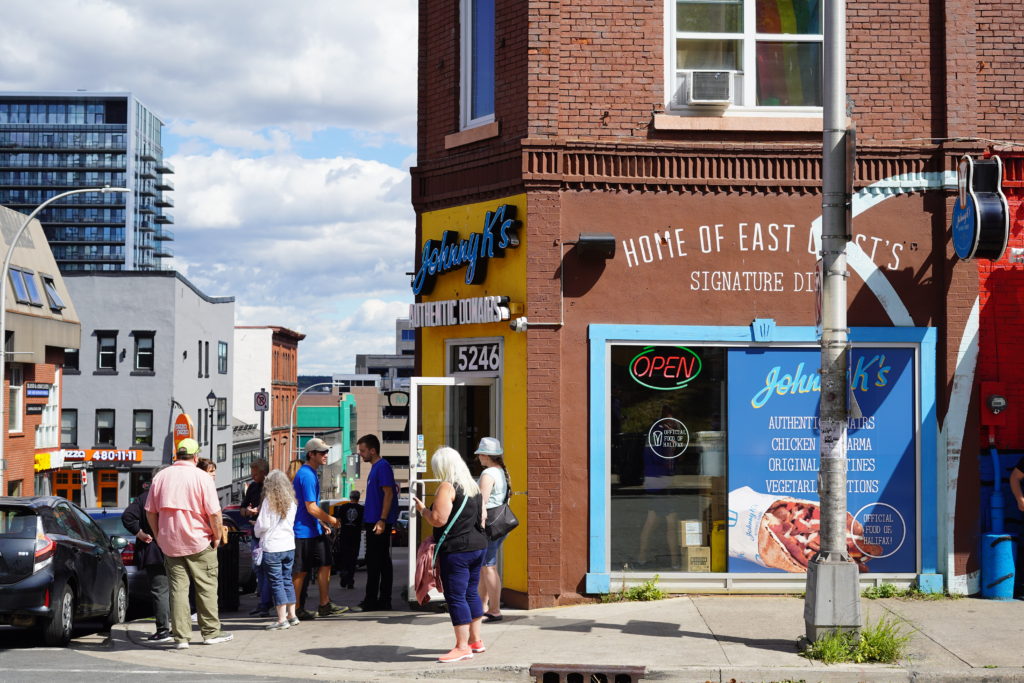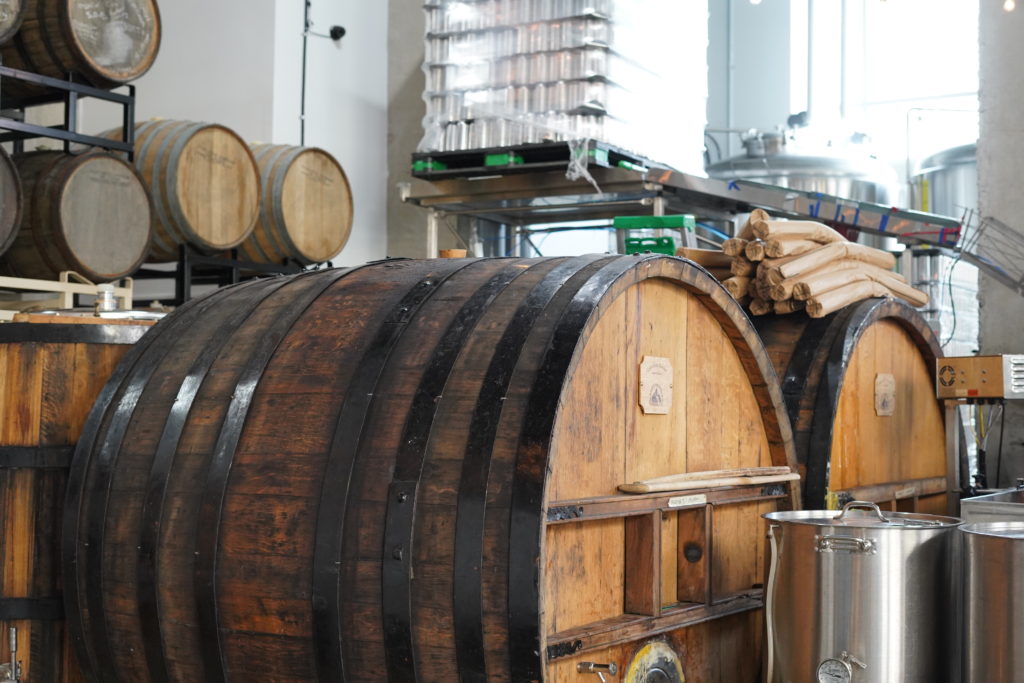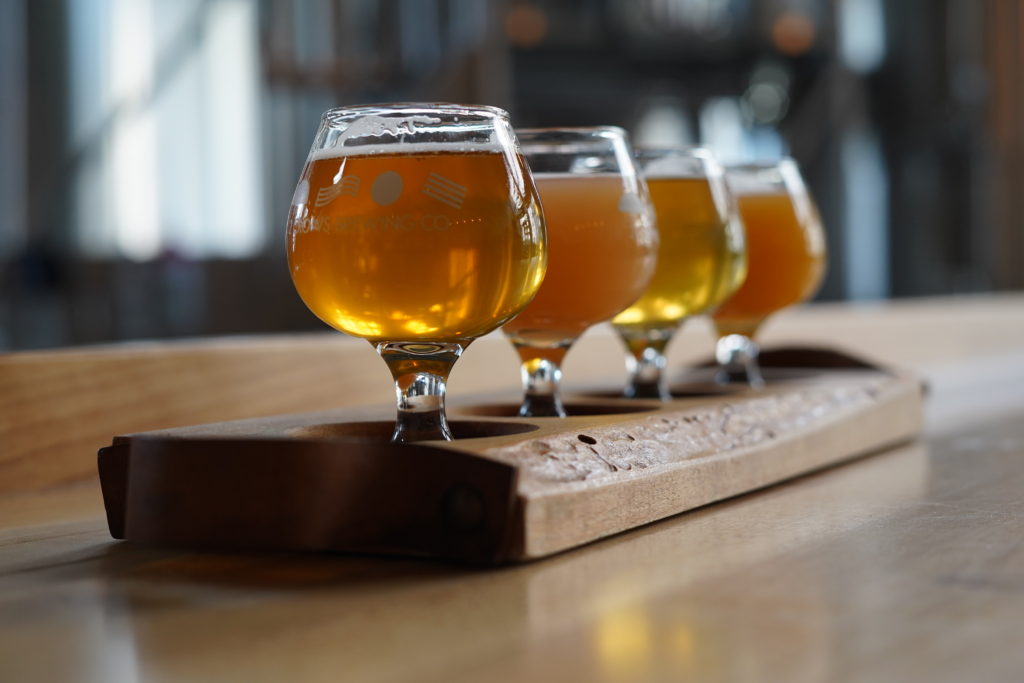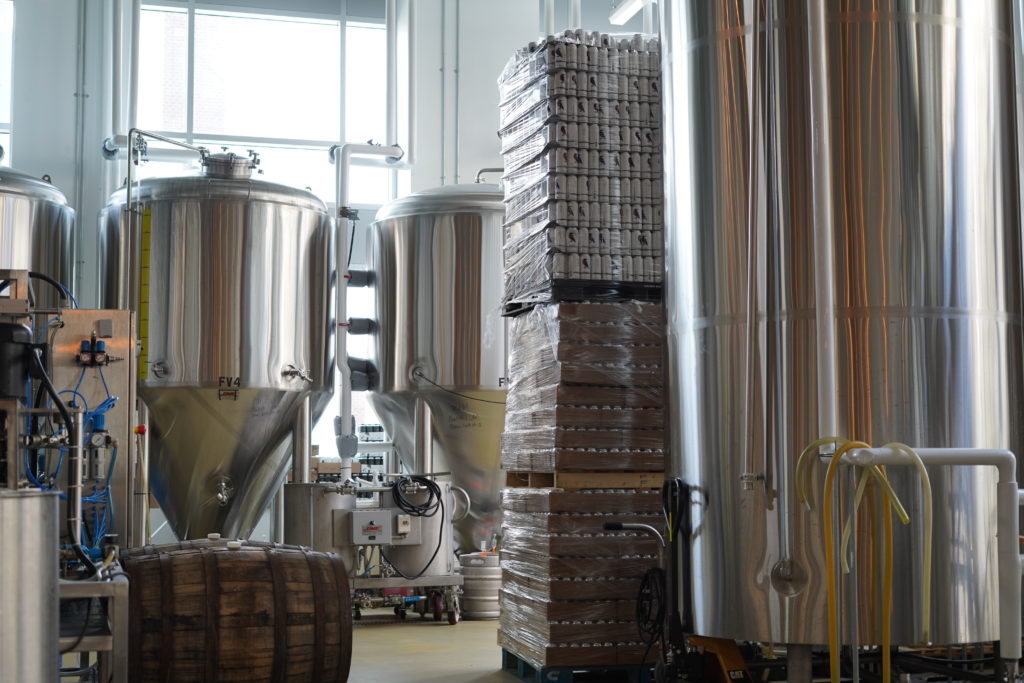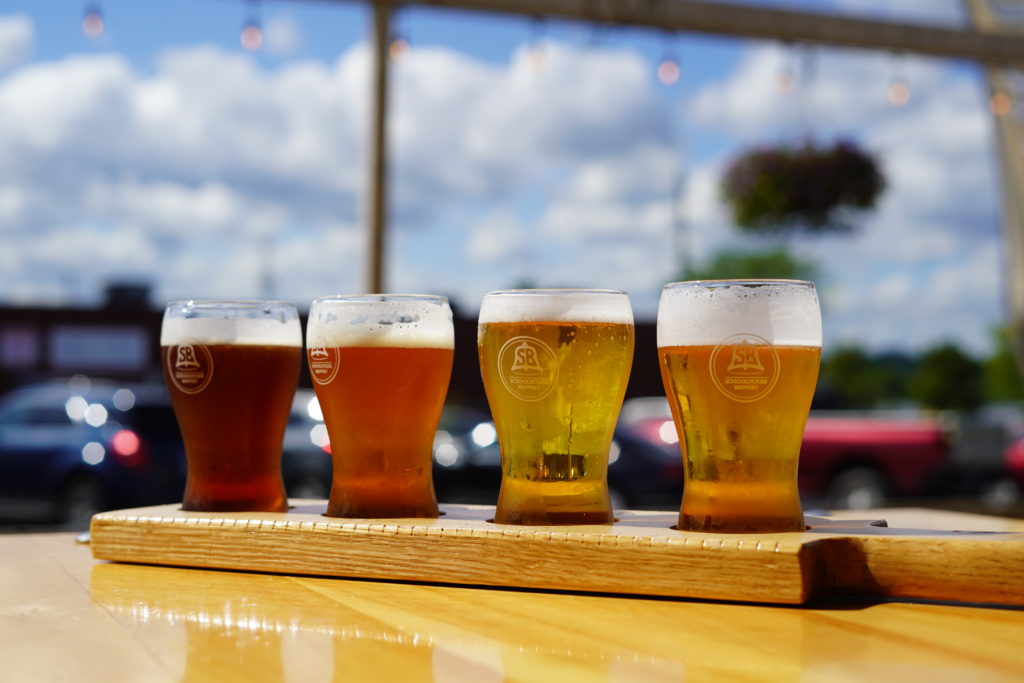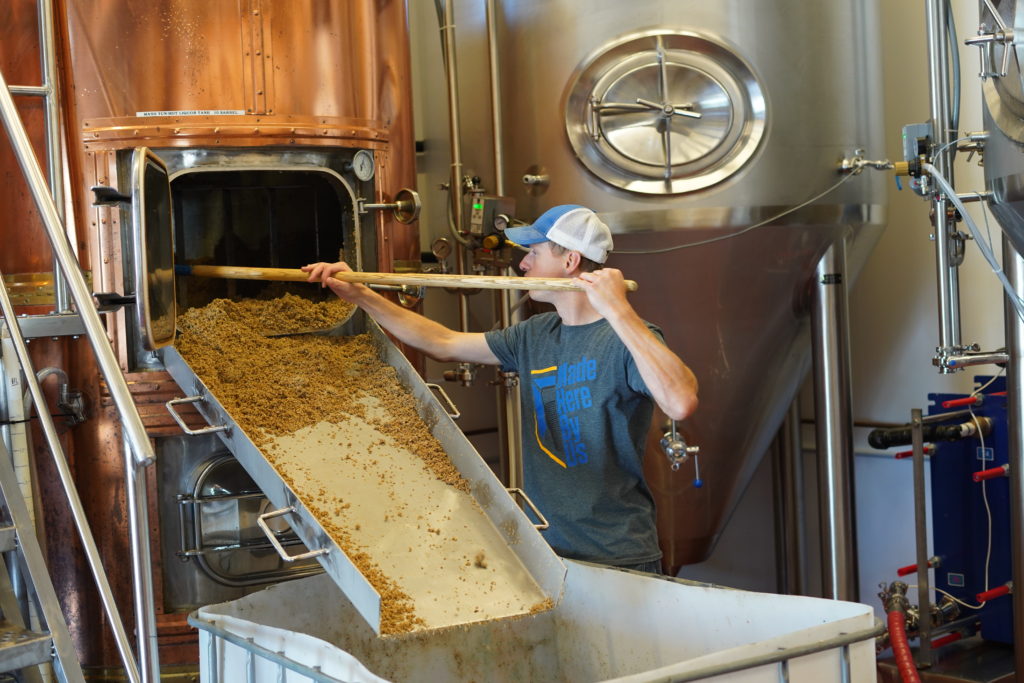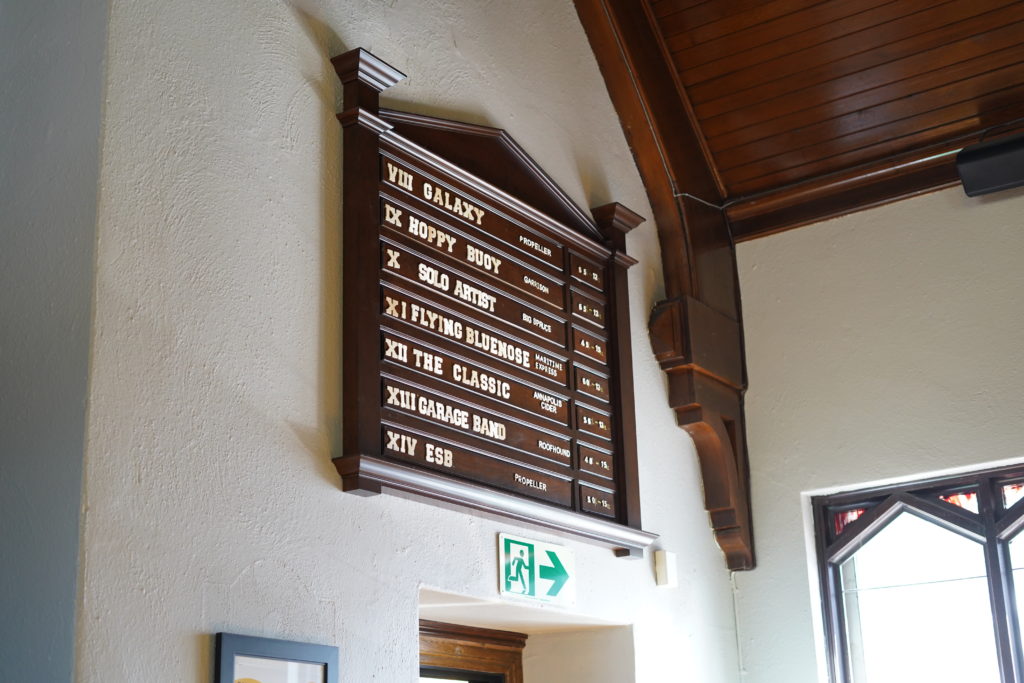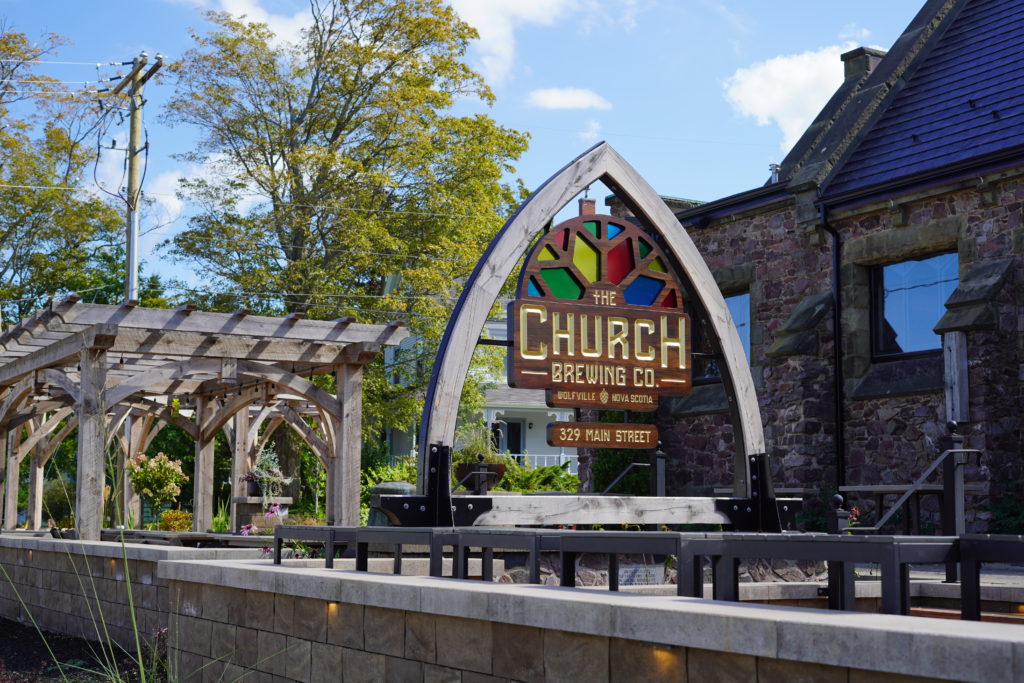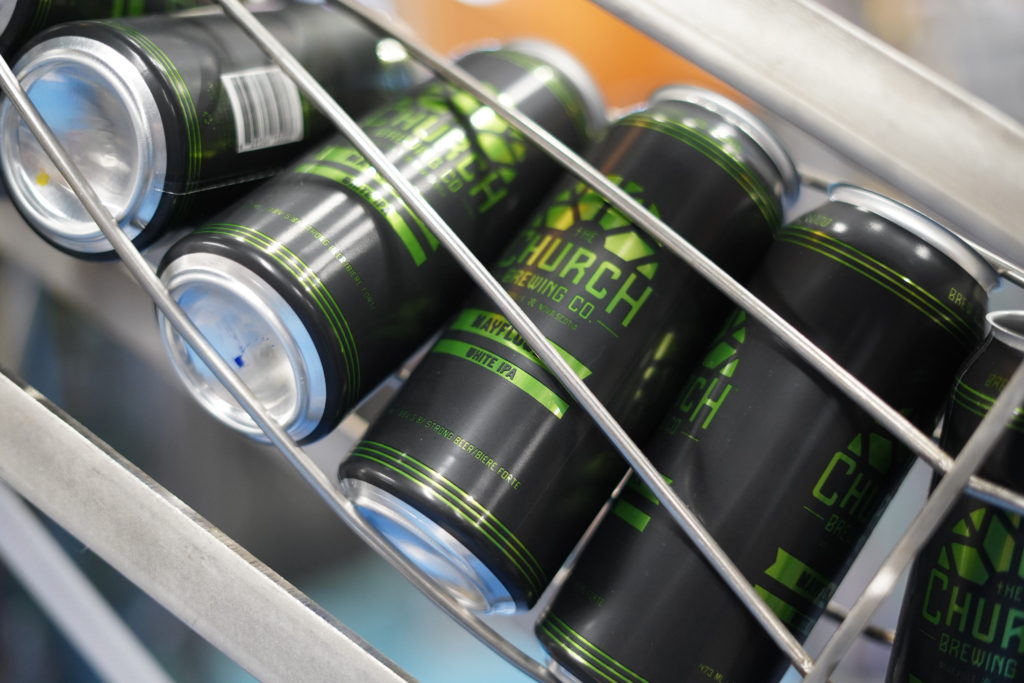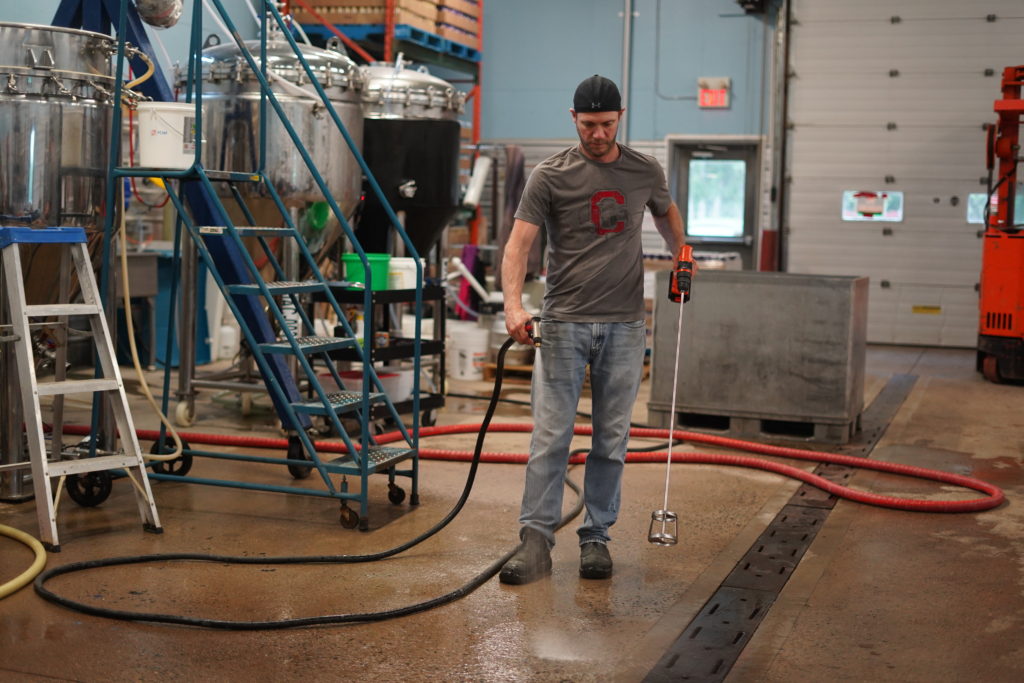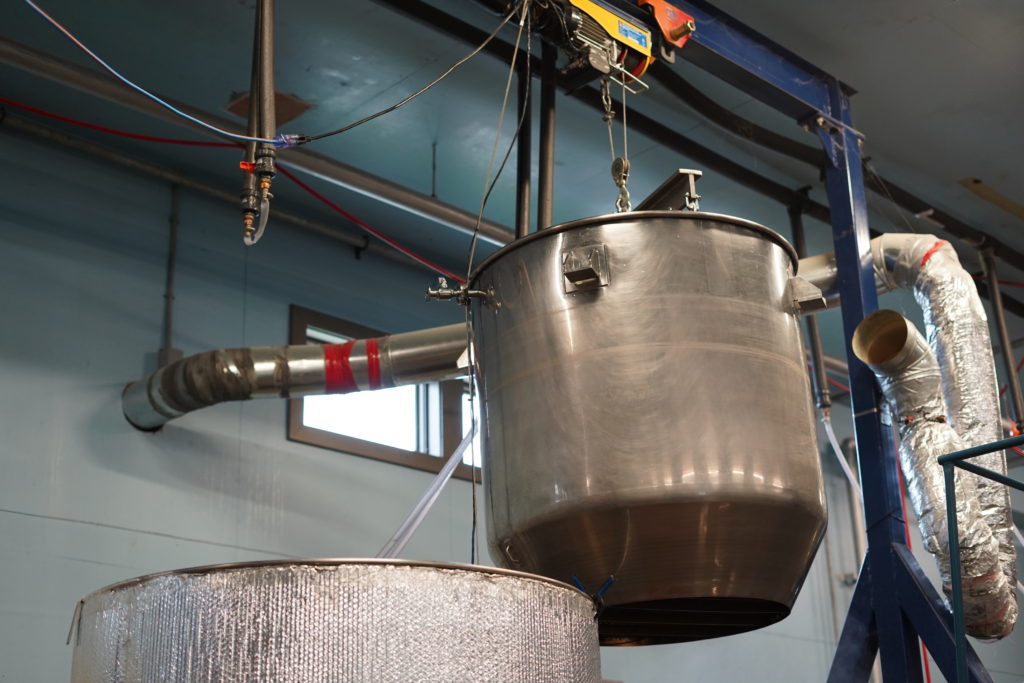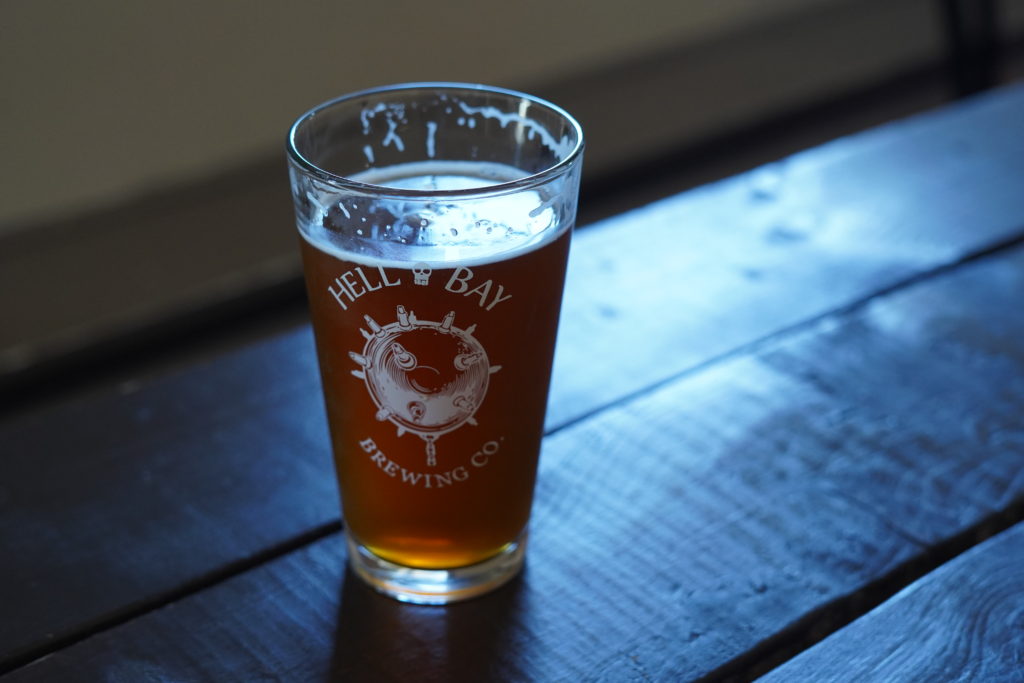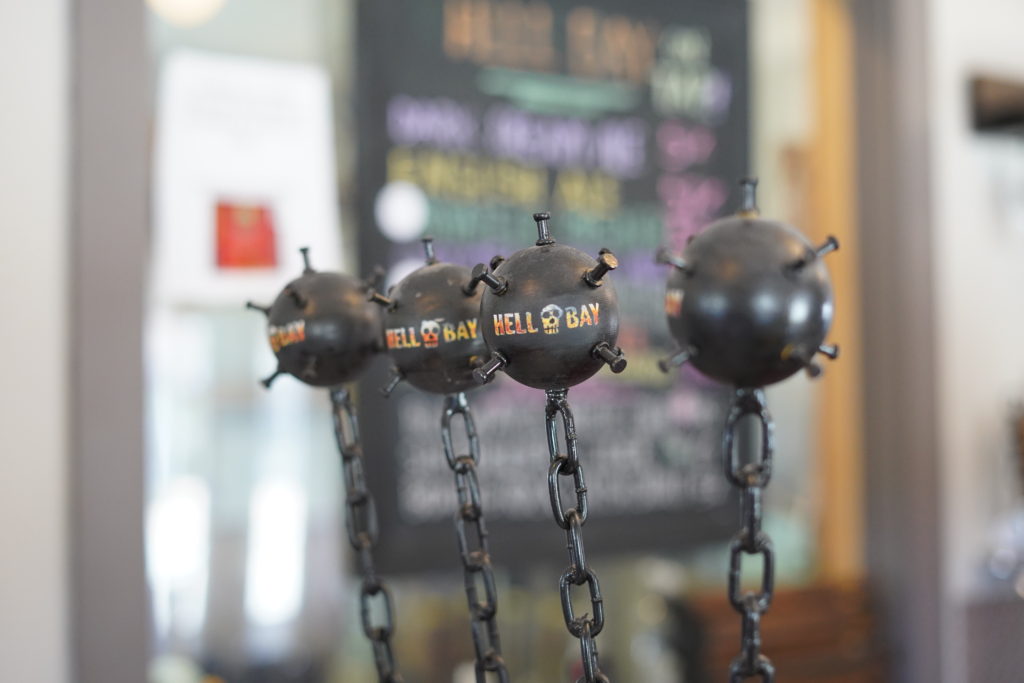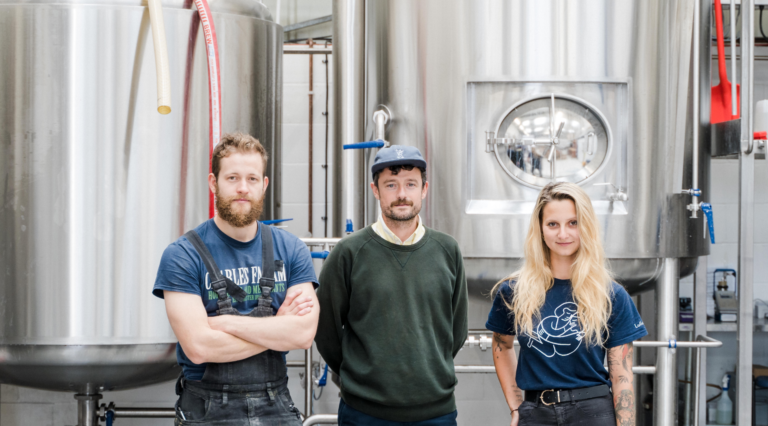A brewing revolution is taking place across Nova Scotia, Canada. More than 50 breweries operate across this beautiful province, though they do not solely produce excellent beer. They are generating employment, establishing destinations and, in many cases, creating communities.
On Route 208 in Yarmouth County, Nova Scotia, is a small fishing community called Tusket. However, it was not always known as thus.
The name Tusket evolved from “Neketaouksit”, which is the Mi’kmaq word for the “Great Forked Tidal River”.
It was a village originally settled in by the Acadians before the British launched the Cape Sable Campaign. The community was also settled by Dutch United Empire Loyalists from New York and New Jersey in 1785, following the Great Expulsion of the Acadians. Much, clearly, has changed in the decades and centuries since. In 2019, Tusket is home to the Tusket Township Courthouse and Gaol, the oldest extant in Canada.
In the present day, there are many places that use the word Tusket such as the village itself, which is at the head of the Tusket River estuary, where high tide salt water meets the fresh water flow of the Tusket River.

You also have the stunning Tusket Falls. In years gone by, especially in the month of May, there’s a strong chance you’d find Jeff Raynard, his friends and a couple of dip nets on the hunt for Kiack.
Kiack is a French Acadian Mi‘kmaq word for gaspereau, a herring that runs the rivers and streams in spring.
“It was a way to make money growing up,” he recalls. “We would get these fish so we could sell them to lobster fishermen. The water was fresh, so it was a great place to fish.”
But not always
He laughs: “Others would get in on the act, too. We’d have our own stands where we’d catch the fish. This was great, until the other kids would build their own rock walls and try and wreck ours. I was fist-fighting at these falls at the age of 8!”
Growing up in the area Jeff, now a little older and wiser, is the co-founder of Tusket Falls Brewing with his wife Melanie Sweeney. He speaks about those days as if they were yesterday, recounting who lived, or lives, in each house along this stretch of the falls.


As adulthood beckoned, so did a move to the west of Canada in Saskatchewan. He’d gone on to start a ‘Fire and Flight’ business, dealing with people’s burnt-out houses, or flooded basements and the like.
“We would dry, rip and rebuild, then deal with the insurance companies,” he says. “It was one of those jobs that was good money-wise but one that drains your soul, especially when it got to the management side of things.”
So like so many others, Raynard would turn to the world of homebrewing as a means of creative release away from the rigmarole of working life. And a visit to the Guinness Storehouse in Dublin, one of the city’s most popular attractions, back in 2012, would prove to be a catalyst.
“I didn’t think I liked dark beer, God knows why. But I know for sure that I really enjoyed Guinness that day and when I came back to Canada, I was always on the hunt for new beer,” he says.
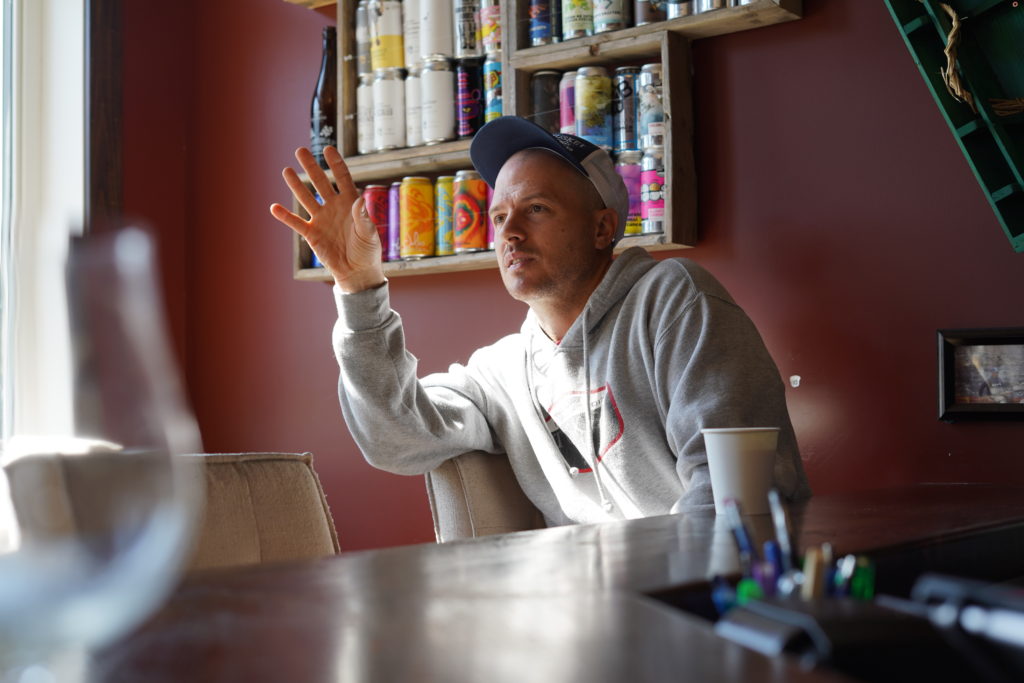
A passion for Homebrewing developed and Raynard would go on to create many of his own beers. Just don’t mention the accidental Gruit.
“I knew something was wrong at the time, but wasn’t sure what,” he laughs. “That’s best forgotten”
“I didn’t think I liked dark beer, God knows why. But I know for sure that I really enjoyed Guinness that day,” Jeff Raynard
Moving back to the East Coast of Canada, Raynard knew he wanted to make professional brewing a reality. Inspired by breweries such as Trillium, he’d go on to work with brewers and friends he respects such as Adil Ahmad. The duo brewed together for 18 months, chasing ideas and working on recipes.
Tusket Falls Brewing was founded in 2017, enabling Jeff and Melanie to realise their dreams, moving back home and starting their own business.
Operating a 20bbl brewhouse, Raynard has a fondness for brewing Hazy IPAs and does them very well, too.
But he’s a fan of all beer styles, also.
“I’ll never commit to one style except our Blonde, I’d be killed if we got rid of that!,” he says. “I brew the beers I want to drink and hope others will want to drink, too.”
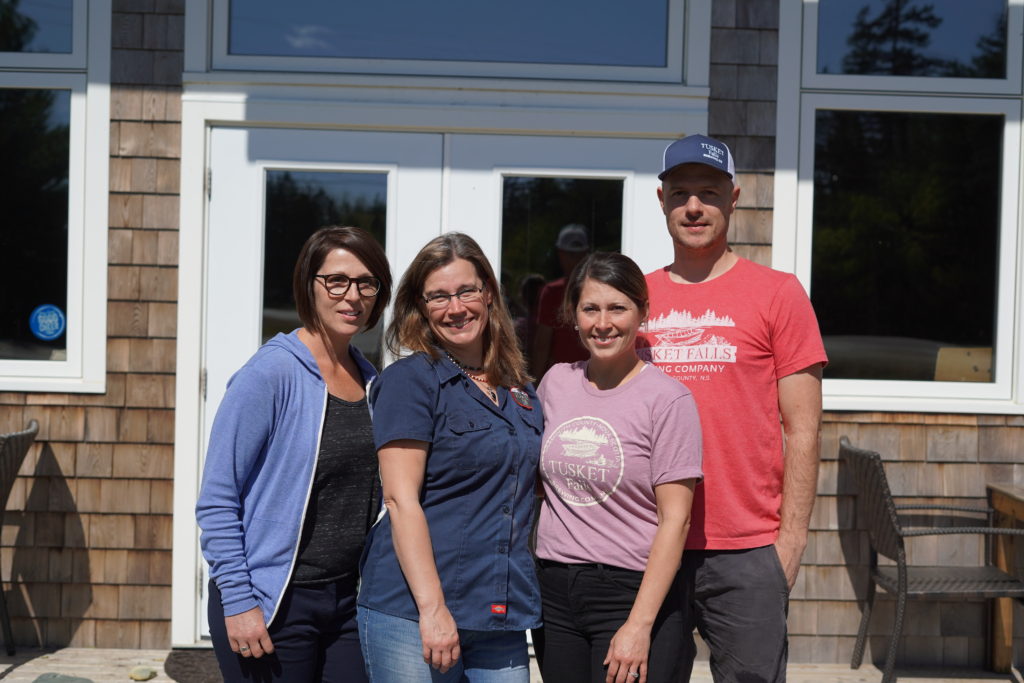
He adds: “I’ve dumped a lot of beer, insane amounts. I’ve been discouraged in the past because I won’t put out beer I’m not happy with. That shows a disrespect for the consumer if that’s your approach to brewing. Sometimes you’d nail it and it’s a case of repeating that. You’re always learning in this industry.
“Brewing beer people enjoy gives you a meaning in life. And that’s an incredibly cool feeling.
Although Jeff and Melanie fulfilled personal goals opening Tusket Falls, the brewery has also had an incredibly positive impact on the local community it is part of. It’s a bar, brewery, restaurant and venue.
It’s a destination.
And though it’s only two years young, it’s now hard to envisage the community without the brewery in it. And they’re not alone.
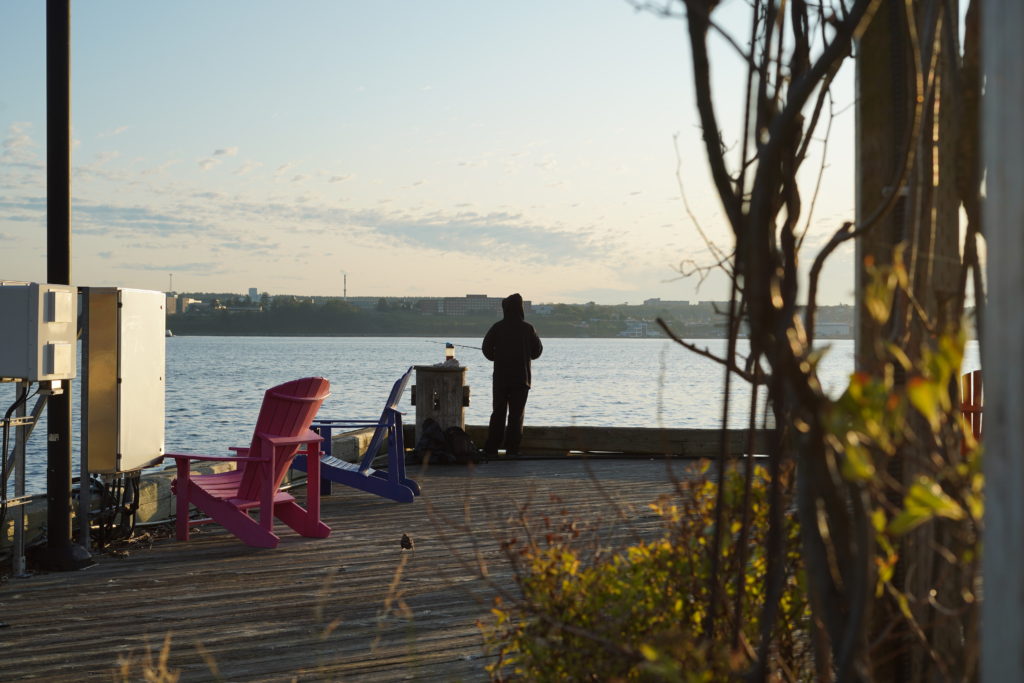
Breweries are proving themselves as the beating hearts of cities, towns and villages across Nova Scotia. And whether you’re a visitor or a lifelong resident, life is all the better for it.
The brewing sector is diverse, but as one. One outfit will be making its name producing kettle sours with fruit additions. A 20 minute drive from there will afford you the opportunity to sample beers steeped in English tradition underpinned by a different form of subtlety, balance and nuance.
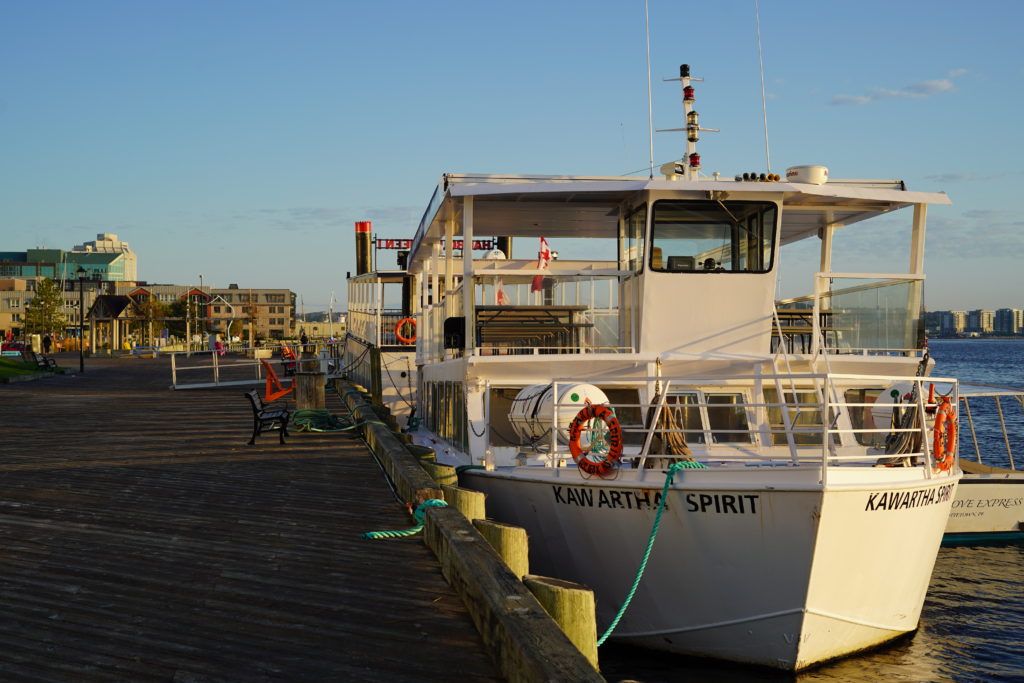
One of Nova Scotia’s first breweries that can produce all of these styles with aplomb is Propeller Brewing in Halifax. 22 years young in 2019, Propeller is the brainchild of John Allen.
In the early 90s, Allen was busy working in the film industry as a prop master and down times between TV and film productions gave him nice, long stretches to experiment with making good beer at home.
Honing his craft for the sheer pleasure, his modesty meant he was taken by surprise when he began to receive warm praise from visiting tipplers on his brews.
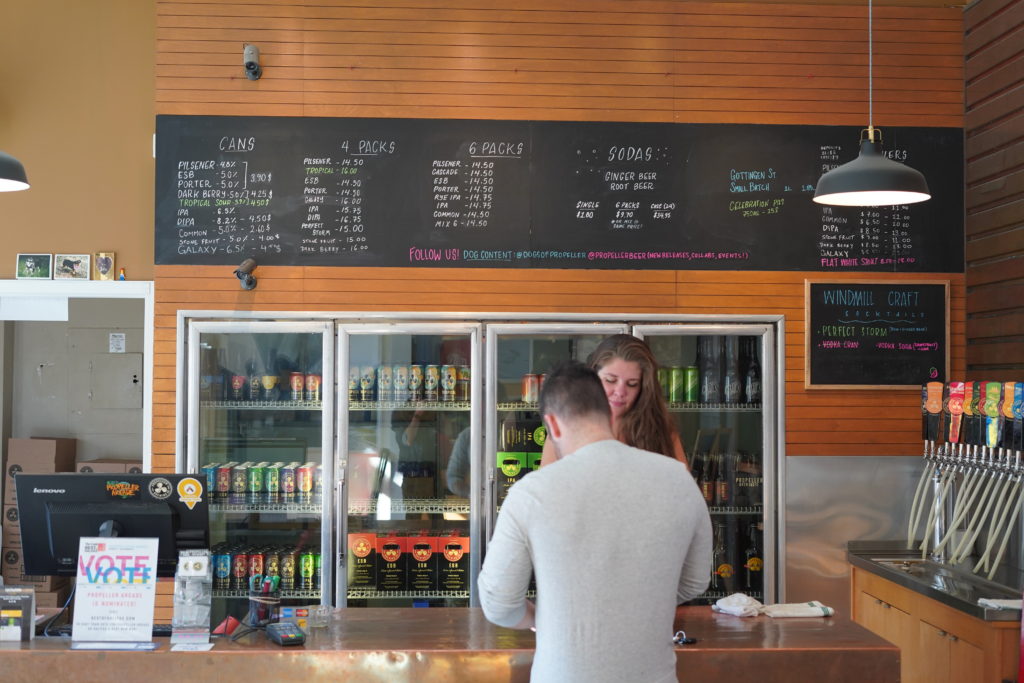
Come 1997, with help from a real-life supporting system that included family and friends, Allen opened the Propeller Brewing Company on Gottingen Street in Halifax. Ongoing success enabled the business to expand to a second location, in Dartmouth, in 2013.
The company’s ethos revolves around the belied that brewing good beer takes two important elements—the highest quality, all-natural ingredients and a talented brew master.
Trendsetters
In 2019, Propeller’s Gottingen Street location is a thriving location for drinkers to pick up a wide varieties of brews for takeout, or to imbibe a beer on site in its popular tasting room.
“Everyone thought John was crazy when he opened a brewery in this area but now look at it, it’s a very trendy spot. Things change a lot,” explains Evelyn Hornbeck, marketing manager at Propeller Brewing. “You just have to look back five or six years and how the brewing scene in Nova Scotia really exploded.”
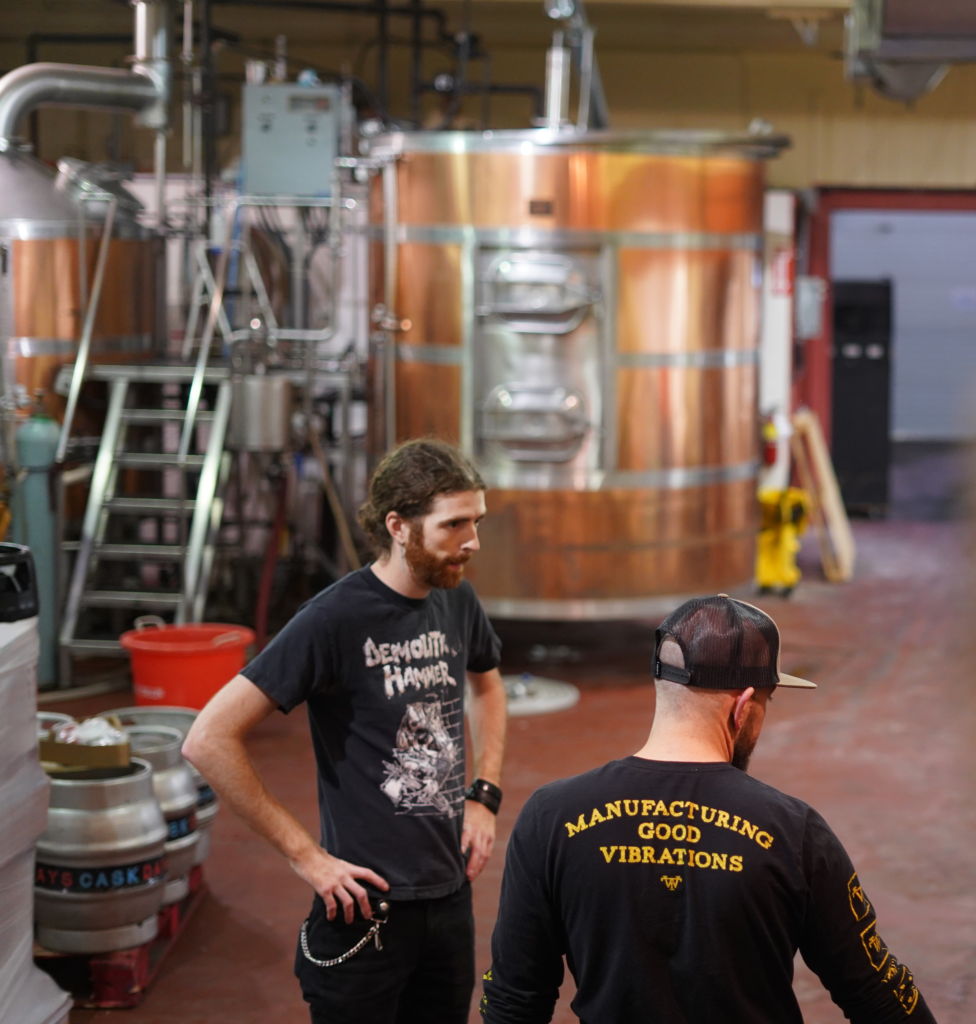

Hornbeck takes particular pride being part of a brewery that has long been a byword for quality in the province.
“I think we’ve stood the test of the time because of the quality of beer we make above all else,” she says. “Propeller has long been known for the popularity of so-called traditional styles, but we’ve shown in recent years that we are just as capable of brewing many diverse beers, too.”
The brewery’s ESB or IPA would have been many consumer’s gateway into the world of craft beer but in 2019, drinkers are just as likely to opt for one of its many sours or the incredibly popular Galaxy IPA. A hazy expression of a Vermont-style IPA, the 6.5% number showcases Australian Galaxy hops alongside Citra and Mosaic. There’s an insatiable appetite for this beer and this very writer is a fully paid-up member of that fan club.
“I think we’ve stood the test of the time because of the quality of beer we make above all else,” Eveylyn Hornbeck, Propeller
Regardless of the type of beer the brewery is making, Hornbeck says two things never change.
“We pride ourselves on attention to detail and attention to quality. We’ve got that level of experience, which informs each decision we make. We’re not interested in rushing a release for the sake of it. Everything needs to be 100% right before we even consider putting that beer on the bar,” she says.
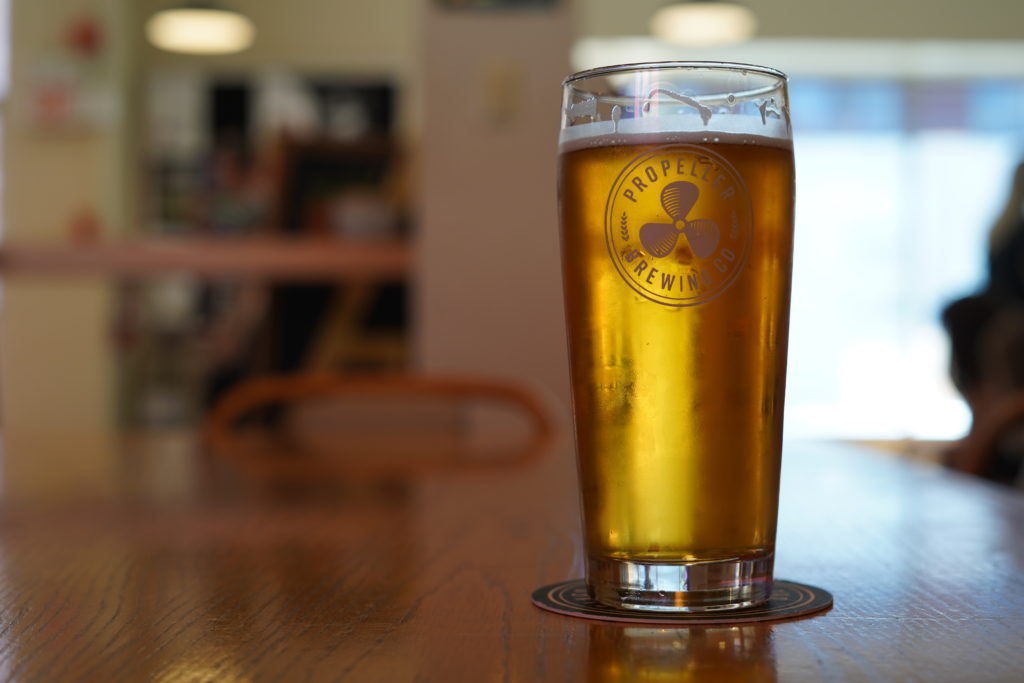
Hornbeck adds: “We just need to continue what we doing and to do it well. That means making the beers that people have enjoyed since day one, but also acknowledge and welcome the increasing number of drinkers in this category.
“There is an appetite for the new, and that keeps things fresh. If you make good beer, and you make people happy, then we’re doing something right,” she adds.
Breweries such as Propeller forged the way for others to follow and in modern day Halifax, there is no shortage of choice for the consumer.
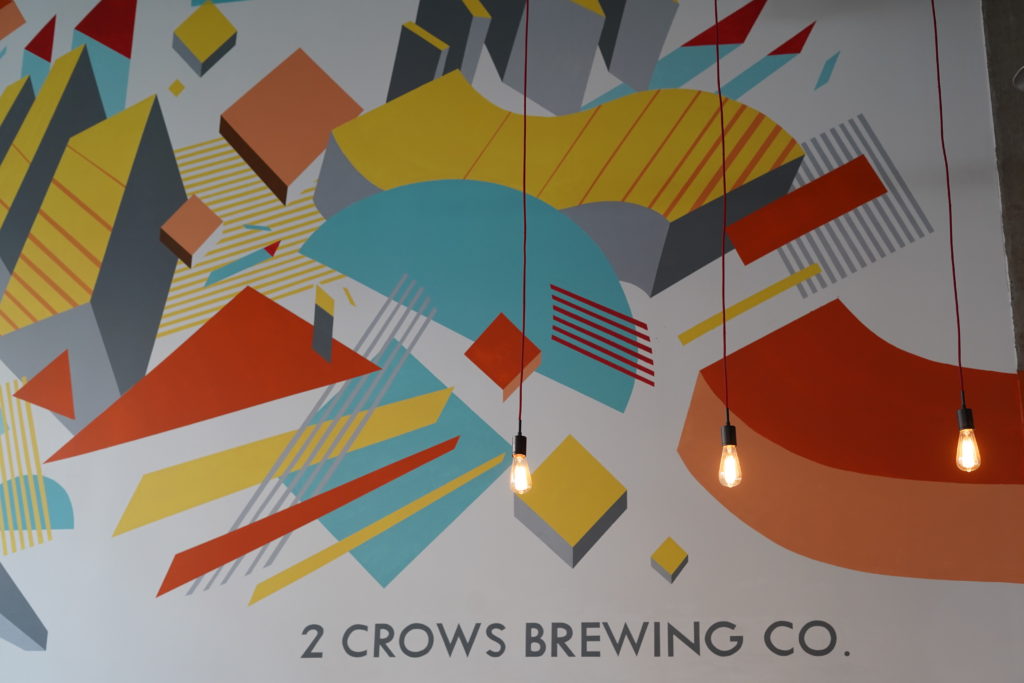
2 Crows Brewing was founded by husband and wife duo Mark and Kelly Huizink alongside brewer Jeremy Taylor. Brewing modern beers, the team set out with the aim of getting people to think more on the craftsmanship behind beer, its characteristics, and where that beverage is coming from.
Their facility welcomes you with a clean airy space, generous views of their brewing operation and a barrel ageing programme that has no doubt turned many a brewer green with envy.
Thankfully, the fruits of these vessels are available to drink and they are mighty fine. Hoopla, a Tequila barrel aged sour with the addition of Agro coffee is enchanting while Persica, a Peach brandy barrel aged sour with dried peach offers a subtlety that could convert even the most ardent detractor of the aforementioned stone fruit.
Another brewery producing an eclectic, and excellent, range of beers is Good Robot. The excellent Good Robot is a brewery, bar, restaurant and beer garden in the heart of Halifax’s historic North End.
Good Robot began with three longtime “friends and misfits” who quit engineering, they explain, to pursue their dream of quitting engineering….
Brewing since 2015, Good Robot’s output does not conform to style, instead in their words “eclectic, eccentric, and untrue to style, fraught with foraged materials, impulse decisions, and whimsy”.

“We don’t make ‘craft beer’; we make beer (kinda). And we enjoy sharing our beer, our building, and our childish minds with our communities,” they explain, “Our GastroTurf (beer garden featuring AstroTurf) brings all the flavours of summer ales to the familiar comfort of a putting green.

“Year-round, we host oddball events, brew with the community, sponsor festivals, facilitate charitable incentives, and make questionable marketing decisions. Want to sit your bum somewhere and let your freak flag fly? Well, matey, set sail for Halifax’s Most Questionable Brewing Experience.”
Building a community
Some 70km north east of Good Robot is the town of Windsor. Located in Hants County, Windsor is something of a service centre for the western part of the county and is situated on Highway 101.
In Windsor, at 40 Water Street, you’ll find Schoolhouse Brewery. Rewind a couple of years, to 1860, to be exact, and the fertile land of Upper Falmouth brought forth not only apples and corn, but also the need for a school, explains Schoolhouse Brewery founded Cameron Hartley.
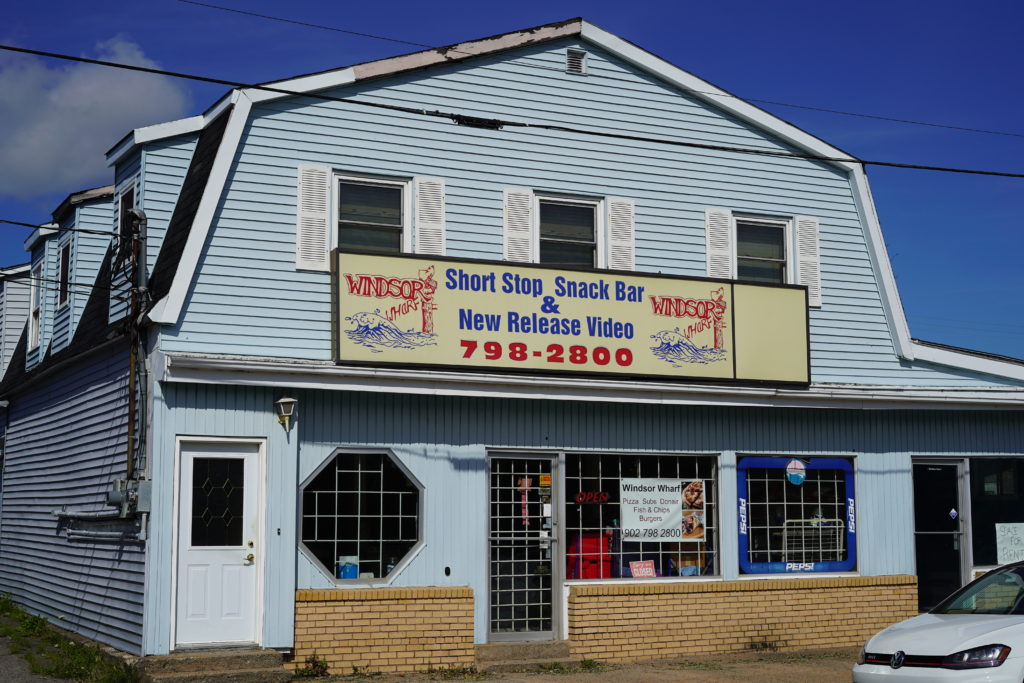
The thriving community on both sides of Sangster Bridge was bustling, and in the spirit of community that still abides there today, a local farmer donated a small parcel of land on the corner of Castle Frederick Road, to be used for a school for the local children.
For nearly eighty years that school remained in its original condition, until in 1944, when the growing community simply needed more space in its school. At that point in time, community members changed the school from a one room to a two room schoolhouse, not by adding a piece at one end, but rather by pulling the building apart from the middle, and adding a section in be-tween the two existing ends.
The seams in the floor are visible to this day. With two classrooms now, one for grades primary through four, and one for grade five through eight, a single teacher was responsible for the success of many children.
Eventually, the flourishing community outgrew its beloved schoolhouse, and Windsor Forks Elementary School was built just a short bicycle ride away, replacing Falmouth School #9. It was later used as a meeting place for several organizations, including 4H, the Anglican church it neighboured, and as a community hall. It was permanently closed as a public building in the 1980s, more than a hundred years after it was built.
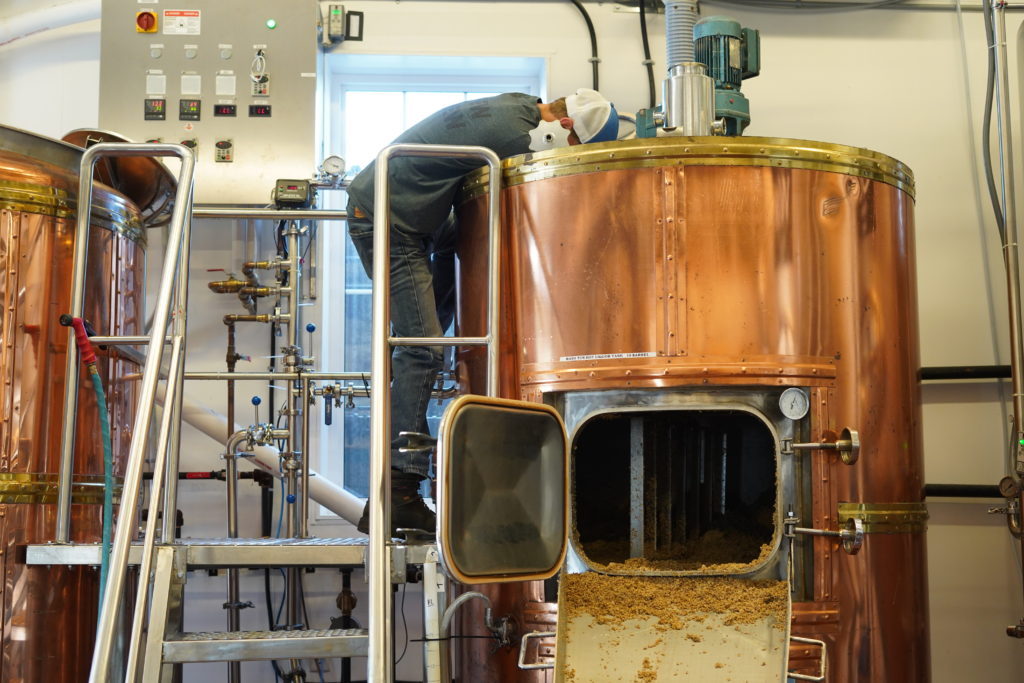
Time passed, and the old school sat with a crumbling foundation and an antiquated electrical system. The community decided that it was time to sell the three-quarter acre lot along with the dilapidated building.
Enter Cameron Hartley, a young man fresh out of paramedic school, who wanted to call the Valley his home. As chance would have it, he spotted an advertisement in a real estate flyer for the property in Upper Falmouth. Interested in a fixer upper he visited the land, and although it was much more of a fixer upper than he had in mind, he still put an offer on the land. It was accepted. Falmouth School #9 would have a new owner.
The restoration of the schoolhouse, done largely by Cameron himself, became something of a local attraction. Most neighbours assumed any buyer would simply knock down the school and build from scratch. Students of the school, now grown, did not expect to have the initials they carved in their school wall be a conversation starter in someones future living room.

After two years of long hours working at the new Halifax Infirmary, and then coming home to work even longer hours on the house, things were finally coming together. Unfortunately, hard work alone cannot build a house, and Camerons personal debt mounted. In financial difficulty, Cameron made the decision to rent out the house in its current state, and move to Japan to teach English.
Four years later, the paramedic-now English teacher-always beer lover, returned home to his schoolhouse with money in the bank. With the lion’s share of the house renovation behind him, Cameron had time to spend on hobbies, one of which was all-grain brewing. He spent time working on house projects, going back to Acadia to get his Education degree, and brewing beer.
Cameron’s interest in brewing was accentuated after inheriting some brewing equipment from a friend.
This love may have come to him naturally; his mother’s grandfather owned and operated a brew-pub in Lamberherst, England in the late 1800s, called the Chequers Inn. Cameron, a perpetual builder, now spends his time building and designing new and more efficient ways to brew beer.
A true lover of beer, he spends equal amounts of time tweaking recipes and ingredients as he does tinkering with hoses and dials. Building a brewery that honours the spirit of community and that respects the land from whence it grew is an important part of the Schoolhouse Brewery’s philosophy.
Cameron now resides in his old schoolhouse with his wife and daughter. He and his wife are both, ironically, teachers. They can sit in their living room and read the carved initials of students who once sat in desks where their sofa is, and they can still see the burn mark of the pot-bellied stove keeping the kids fingers warm on winter days. And while there are no longer any desks or chalk-boards or rulers at the Falmouth School #9, you will certainly find the old school bell ringing at the Schoolhouse Brewery.
“2019 has been good, very good,” he smiles. “You have to realise that when it comes to the craft beer business in rural areas, you’re really building a culture that wasn’t there before. You’re not coming in where there’s already a lot of established businesses.”
Hartley is rightfully proud of building just that in Windsor.
In his own words, Hartley set out wanting to make beers that are accessible to the Schoolhouse audience. It just so happens that the drinkers at his brewery like the same types of beer he produces.
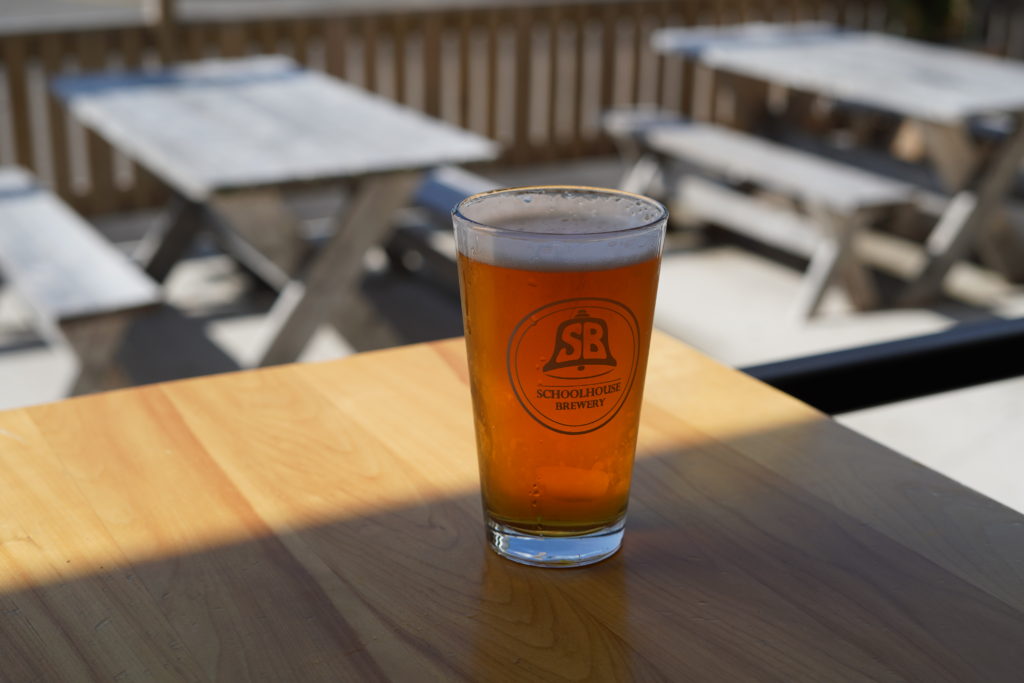
“We are a bit no nonsense, if you will,” he explains. “We’re not selling super sexy trendy styles, but without these types of classic beers, the Pilsners and Pale Ales, the newer types wouldn’t exist.”
Hartley admits that he can be entertained brewing the same beer over and over, albeit with minor adjustments, in a bid to dial them in and make each beer the best it has ever been. His Pilsner is a case in point.
“I’d love to see more Pilsners in Nova Scotia. Maybe we’re still behind the curve of the appreciation of those understated beers,” he laments. “I can understand why so many people are brewing IPAs though, because they sell really well. It’s where the market is.”
“You have to realise that when it comes to the craft beer business in rural areas, you’re really building a culture that wasn’t there before,” Cam Hartley, Schoolhouse Brewery
Schoolhouse Brewery is a valuable asset to the people of Windsor. They might not have realised it before but it’s clear, even on an early weekday afternoon, that it has become a go-to spot for consumers. Even if beer isn’t at the top of their agenda, either.
“I’m originally from Ontario but I’ve been here longer than anywhere else,” says Hartley. “What I do feel though, is that Nova Scotians sometimes have a hard time appreciating what they have here, and that doesn’t click until they come back.”
He adds: “Look at the brewing scene here. It’s probably fair to say that we may have lagged behind in the last decade or two, but that has changed. It has accelerated quite quickly. Sure, we’re not leading in Canada, but we’re not that far from the front, either.”
“I’m of the belief that we’re about 7% of the beer market in Nova Scotia. And if that was to double, then we’ll all be doing well. That said, everyone has to have their A-Game on and to be making really good beer if we’re to stand a fighting chance.
“You simply can’t get away with sending out batches of substandard beer. What was was new and exciting at one time is no more. The consumer that was more forgiving, simply because they didn’t know any better, has become more educated. As a brewer, you have no excuse.”
The journey continues
Crossing the Avon River and heading North East you’ll soon find Wolfville, a town in the Annapolis Valley of Kings County. Home to Acadia University and Landmark East School, the town is a popular tourist destination offering amazing views of Cape Blomidon, the Bay of Fundy and Gaspereau Valley.
Wolfville, and the valley at large, is also home to some fantastic breweries. One of which is Church Brewing Company.
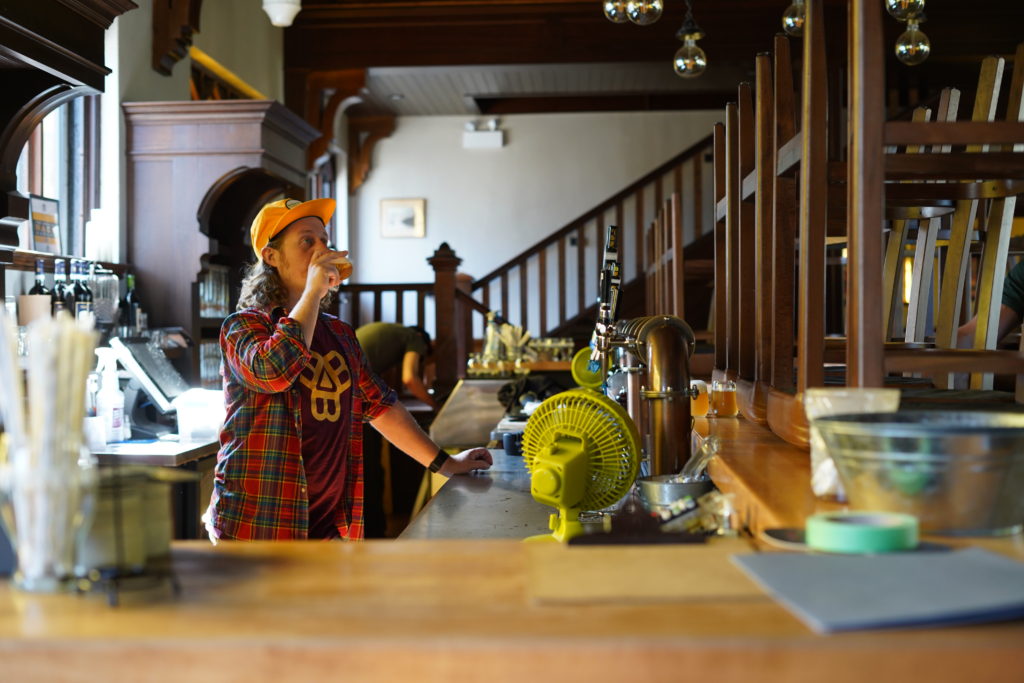
The Location of The Church Brewing Company is rich in history and has been a place for the people of Wolfville– formerly known as Mud Creek–to congregate. The Church was originally built prior to 1840, as a Presbyterian Church, and located on Prospect Street. The structure was wooden and relocated in 1885 to its current location on Main Street. Unfortunately it succumbed to fire in 1913.
The Church was rebuilt with stones from White Rock; red stones were used on the outer walls while Wallace stone was used to shape the windows and door arches. With help from Nova Scotia’s beloved architect, Andrew Cobb, and contractor, Charles Wright, the stone church was re-built. The cornerstone of the St Andrew’s Presbyterian church was laid on July 8th, 1914.
The beautiful stained glass memorial window, located in the east wall of the sanctuary, holds sig-nificant meaning. The window was built in 1975 to honour the memory of former congregations, spanning over two hundred years.
Many natural colours used in the stained glass window represent the good that is a part of every person regardless of how their characteristics make them appear to others–hence the kaleido-scopic design chosen.
Change of purpose
The congregation saw considerable growth in 1923 when the Presbyterian churches of Wolfville and Grand Pre, the Methodist Churches of Wolfville and Greenwich united to form one congregation; the United Church of St. Andrews. Today the church is known predominantly as ‘the stone church’ in Wolfville or St. Andrew’s United.
The Church was purchased by the Church Brewing Company in September 2017. The owners and co-founders began working with local project managers, designers, architects, and contractors, with great support from the Town of Wolfville.

The restoration project included re-designing the church into a year-round restaurant and retail store, and the new construction of the attached microbrewery. The brewery, now completed, includes a 4-vessel 35 hectolitre brewing system and a separate 2-vessel 5 hectolitre pilot system.
The restaurant opened its doors on January 30th, 2019 and initiated the first brew on July 4th, 2019.
Along with founders Steve Haysom, Matt Haysom, the co-founders of Church Brewing are Brendan Nichol, Erin Hayson, Andrew Bartle and Marissa Begin.
Bartle, in his role as brewmaster and brewery operations, alongside marketing manager Begin, took the decision to move from Toronto to take on the fresh, new challenge at Church. Like Cameron Hartley at Schoolhouse and Tusket Falls’ Jeff Raynard and Melissa Sweeney, the desire to forge a new beginning in beer overruled geographical boundaries. Be that returning home, or starting afresh.
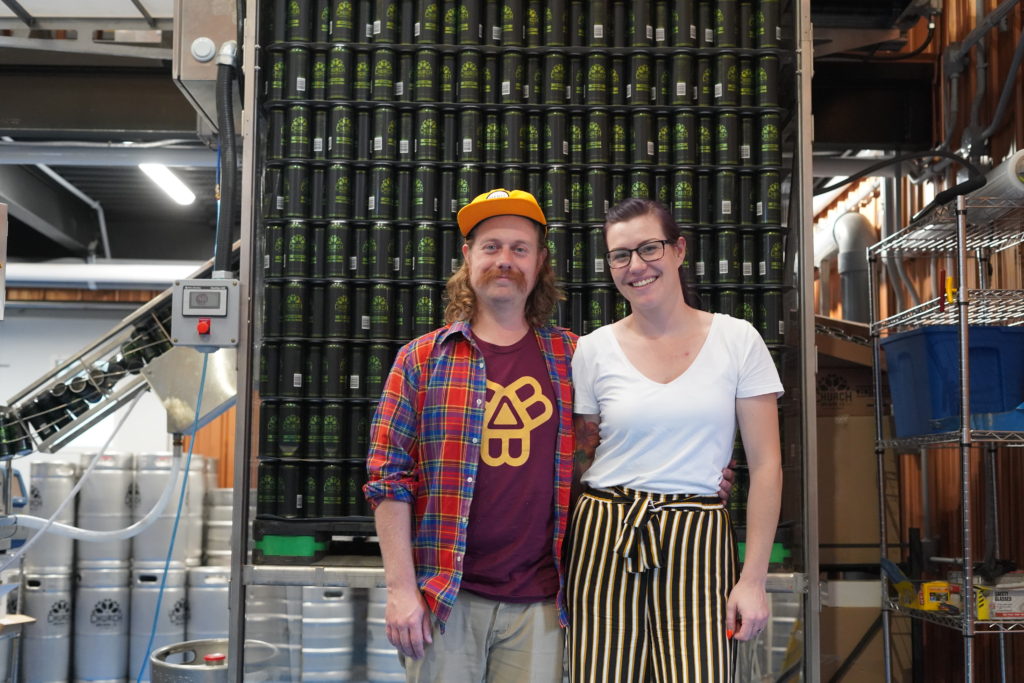
“This was an opportunity that we couldn’t turn down,” explains Begin. “People seem very, very happy with what we are doing, they are receptive, and that is a great thing.”
Church Brewing Company is impressive in both scale and execution. The main church area houses the bar and restaurant while brewing takes places on a four vessel 35HL brewhouse from DME.
“We saw how saturated the market was with certain beer styles, and I have a passion for German and Belgian beers, so it made sense to find this niche,” says Bartle.
This has manifested itself in such beers as Eight Bells, a golden ale the exudes aromas of lychee and gooseberry with light pine and white pepper. Flavour offers a firm but balanced bitterness with an estery sweetness.
Witbier Silver Lining is a a cloudy straw coloured beer with a tight white head. The aroma has lovely notes of bright orange zest and a spicy peppery note from the yeast and coriander. The flavours are full of that lemony wheat character, slightly acidic with a nice bitter spicy backing. This is a very effervescent and dry beer that is very soft on the palate.
Elsewhere you have Mayflower, which pours a hazy pale yellow with a billowy white foam. The aroma is full of passionfruit, papaya, mango, pineapple, and fresh orange zest. The flavour is full of tropical fruits, light bubblegum, balanced with an assertive yet delicate bitterness. A creamy mouth-feel that finishes very dry.
Bartle is modest in his approach to beer, and the positive reception they have received, just as Begin is in her excellent work on the branding Church Brewing boasts.
“I think of myself as a glorified janitor that makes a happy home for yeast. It is hard work, but it is fun, too,” he says, “Be as complex as you like in the beer you make but regardless, the beer needs to be consistent and of high quality.,”You have to realise that when it comes to the craft beer business in rural areas, you’re really building a culture that wasn’t there before.
You have to realise that when it comes to the craft beer business in rural areas, you’re really building a culture that wasn’t there before,” Andrew Bartle, Church Brewing Company
There’s a drizzle and delightful malt aromas in the air during a visit to Lawrencetown, home of Lunn’s Mill Beer Company. “,”You have to realise that when it comes to the craft beer business in rural areas, you’re really building a culture that wasn’t there before.
Opening its doors in March of 2017 filling growlers and selling out beer with ease, today the brewery boasts a full tap room that seats 100 people and patio overlooking a pond and neighbouring cranberry bogs.
The brewery offers a strong core range of beers and great food to complement those brews.
The business has its name steeped in history. In 1760, this beautiful part of the Annapolis Valley was known as Lunn’s Mill, named after the major industry in the area: a bustling sawmill owned by John Lunn.
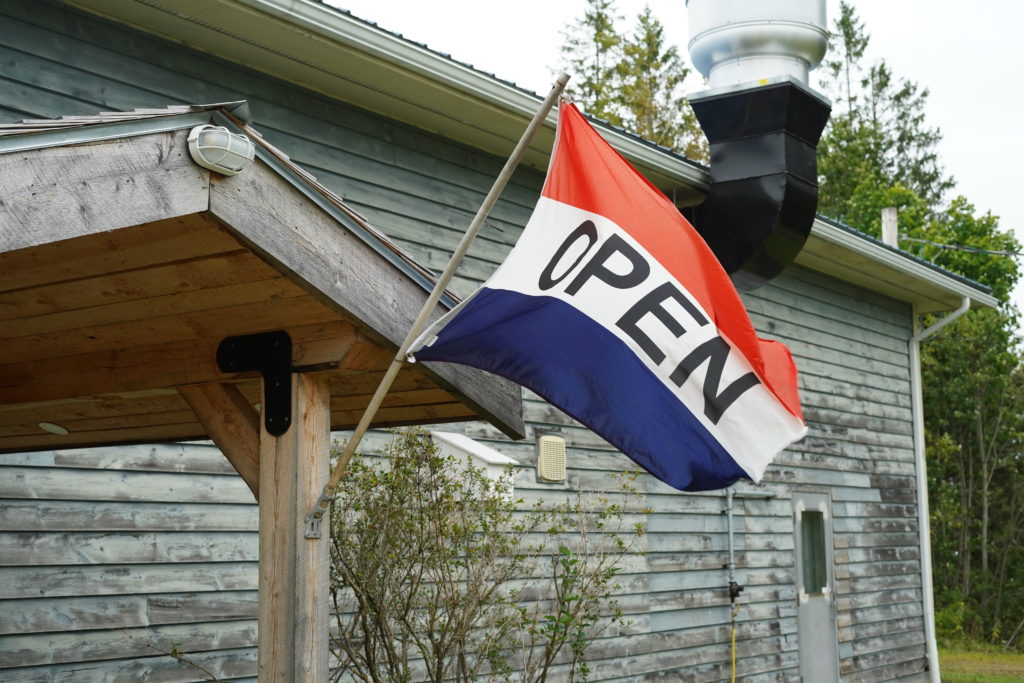
Around this time, the Charming Molly set sail from New England carrying the first New England Planters. These intrepid people helped to expand the community working alongside the Mi’Kmaq to grow the community with farms, shops and in 1822 it was renamed Lawrencetown after Governor Lawrence.
“It was fortuitous finding this spot,” co-founder Chantelle Webb tells us. “Sean [Ebert] and Mark [Reid] had a history of homebrewing, I was friends with them and things came together to form what is Lunn’s Mill Brewing Company.
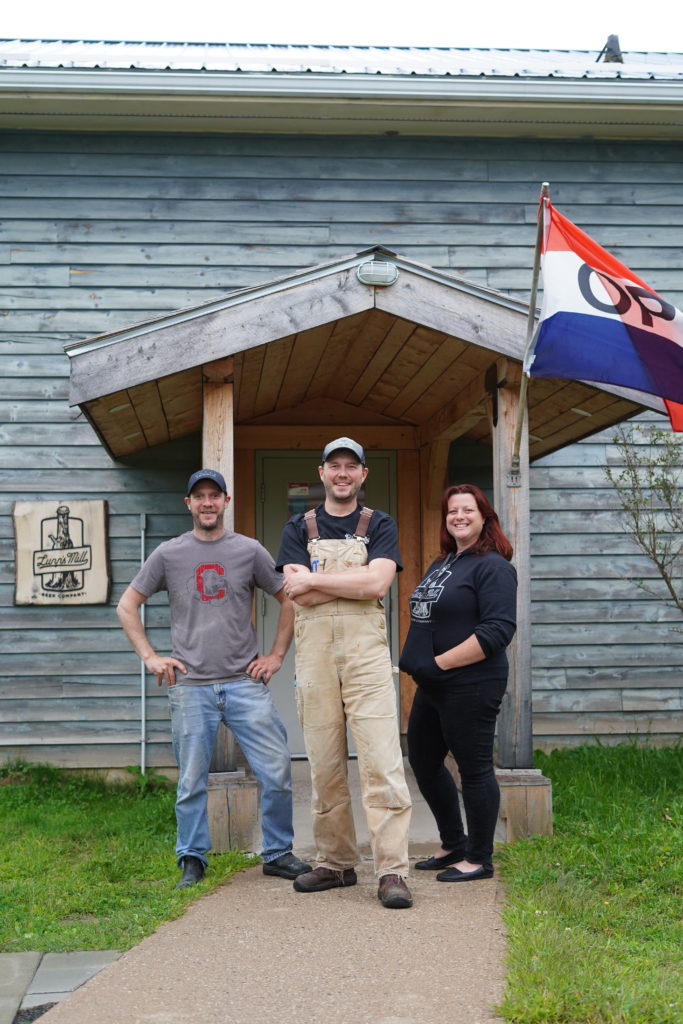
Webb is the culinary brain behind Lunn’s Mill, expertly curating a kitchen offering that complements the brewery’s beer output comprising beers such as Purple Grain, an IPA featuring Citra, Cascade, and Centennial for a tangy and slightly spicy hop profile, gold in colour with a balanced malt body featuring notes of honey.
First Cut IPA, one of the original Lunn’s Mill brews is hop-forward, bright and citrusy. A very pale, and slightly hazy beer that collected the 2018 Down East Brewing Awards American IPA Gold Medal Winner.
There is also Anvil Porter, a smooth, dark, porter with hints of roast, chocolate and dark fruit. Closer to the American-style porter than the British style, bitterness is moderate and balances nicely with the full malt body.
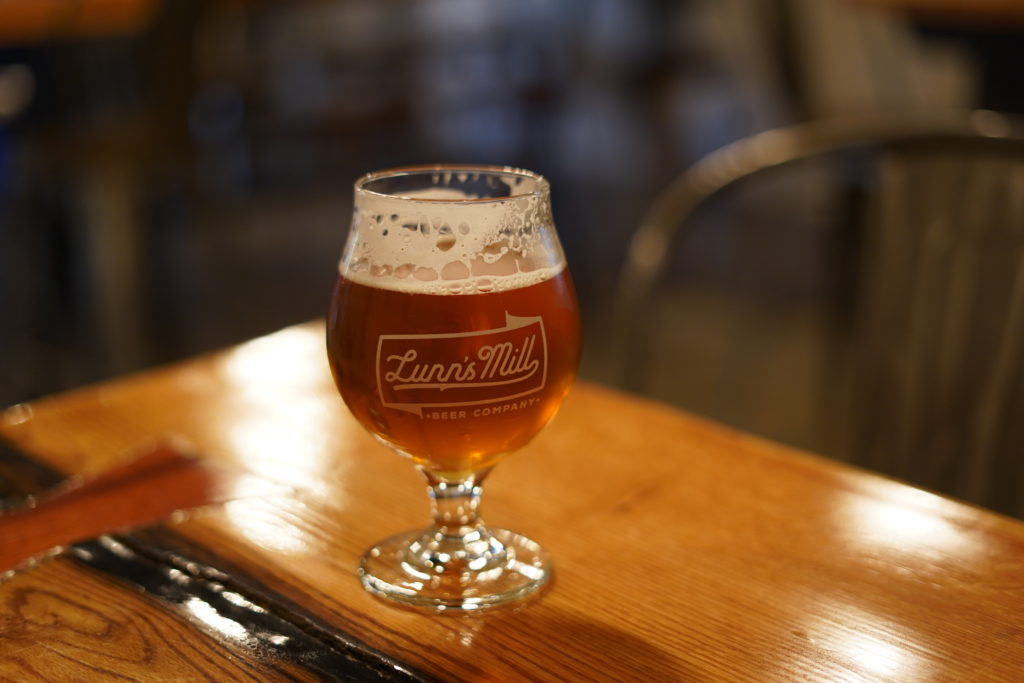
With these beers, a welcoming environment and a comprehensive food offering, Lunn’s Mill has long established itself in Lawrencetown, though they take nothing for granted.
“We’ve learned a lot, and we feel as though we’re better than ever,” says Webb. “To provide a home to people wanting to eat, drink and have a good time is an incredibly validating feeling.”
There is an ethereal quality to much of Nova Scotia. It might be the power of its presence on the big screen, or the fact that the area is genuinely beguiling, but Cape Forchu in Yarmouth County is a sight not to be missed.
Cape Forchu Lightstation is the first “applecore” style lighthouse, located 11 km (7 mi) from the town of Yarmouth on the Cape Forchu Scenic Drive in the Yarmouth & Acadian Shores region.

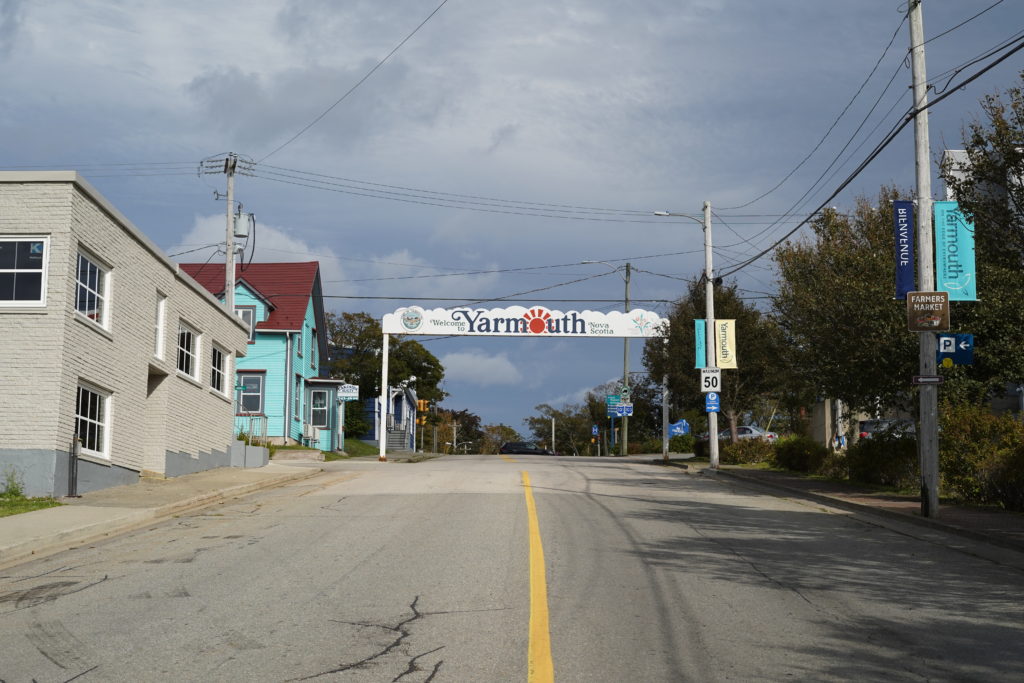
Along the route to the Lightstation you pass the Fisherman’s Monument, working fishing villages and beautiful sandy beaches. Though somewhat brisk on this particular visit, the ability to procure a can of Freezing Spray IPA needed no second thought.
This IPA is the produce of Heritage Brewing Co, founded by four friends, Jason Murphy, Albert Whittaker, Drew Jackson and Jeff Bain, in 2017. You can call it a cliché but this brewery is truly a labour of love. Each member of the team holds down a day job, with Jackson doing dock work while the remaining trio are teachers.
“We pride ourselves on locally produced beer that can be enjoyed in a nice environment, says Bain. “What we hear a lot is ‘Yarmouth really needed this’ which is great to know. To be doing something that people from the town say they wanted and needed is incredibly rewarding.”
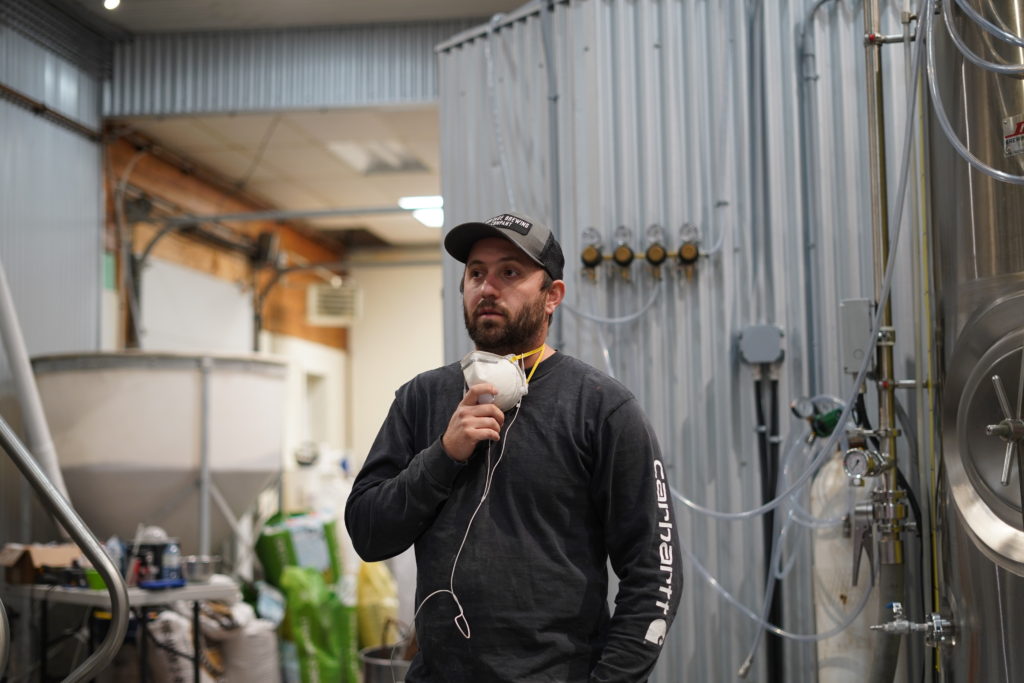
The aforementioned Freezing Spray IPA is a hop-forward beer with plenty of bitterness and fresh hop aroma. At 6.5% ABV there’s enough malt to support the ample additions of Chinook, Ekuanot and Citra, resulting in a beer with plenty of citrus and fruit aroma with some pine and spice over the palate.
Follow the coast south, and then east, for some 150km and you reach Hell Bay in Liverpool. Though some distance apart from Heritage, its role remains the same. An invaluable asset for the community it is part of.
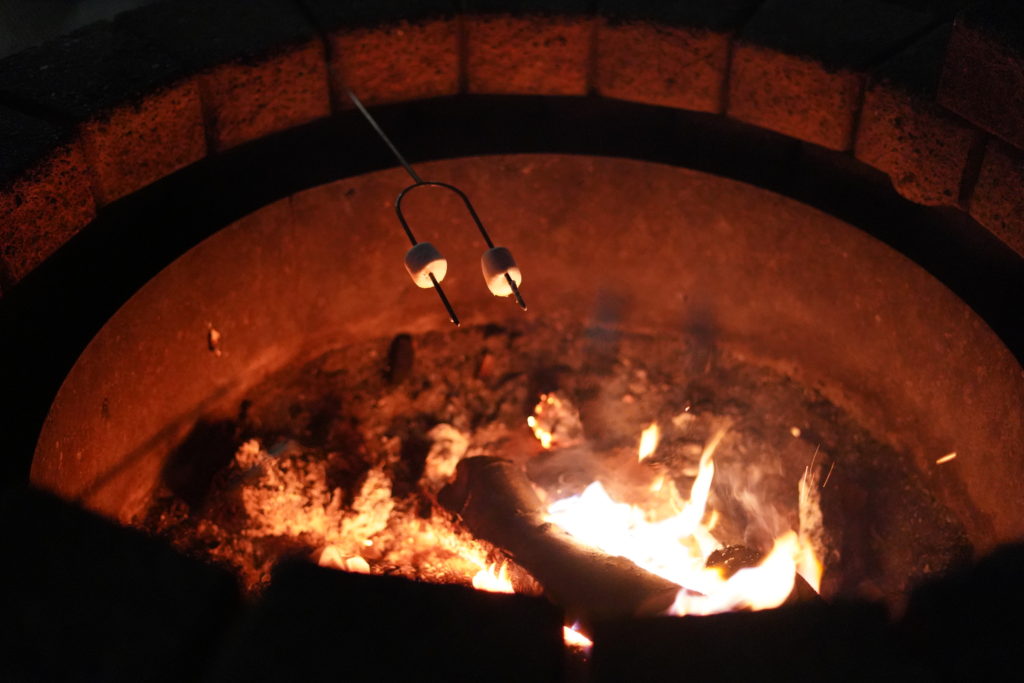
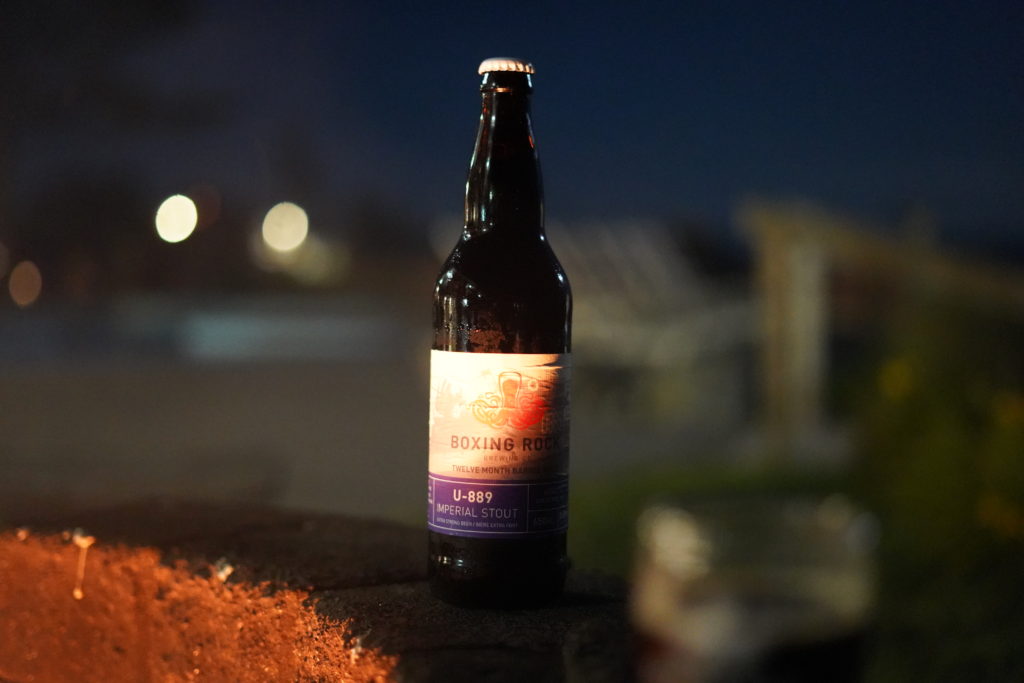
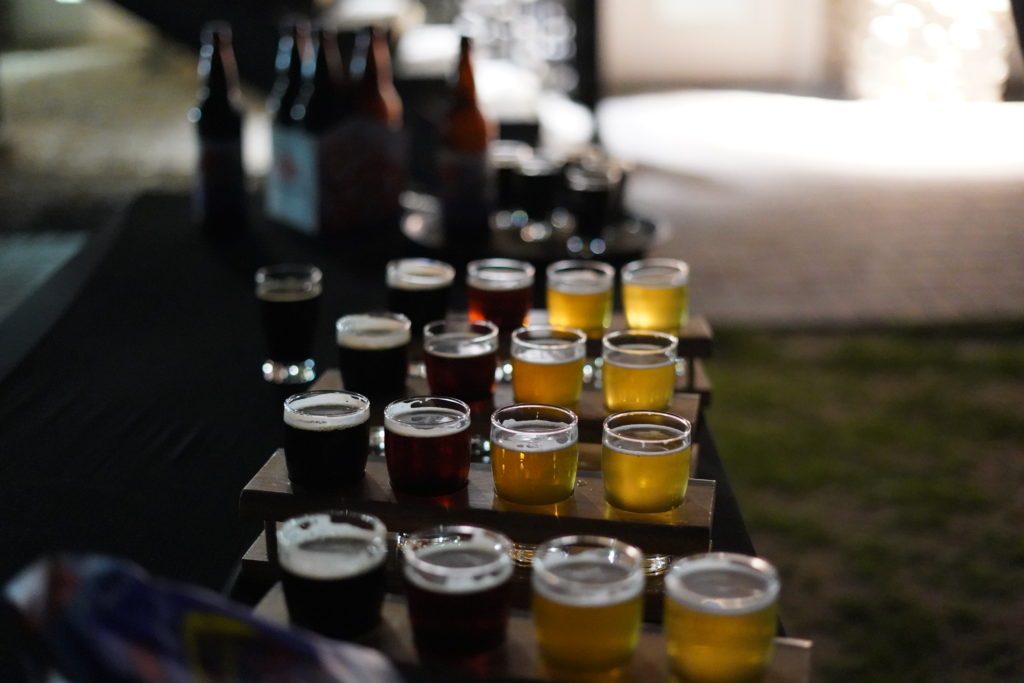
Hell Bay is an owner-operated brewery started as a passion, grew through perseverance, and is maintained through dedication. Co-founder and owner Mark Baille began brewing as one of many hobbies. Working full time as an electrician at Michelin and living on a hobby farm with his partner Melanie and their growing family in Cherry Hill, Nova Scotia, Mark devoted himself to brewing.
Through experimentation, self-education, and long hours, he worked on perfecting his recipes, building his own equipment, and growing his home-brewery. Melanie finally convinced Mark they could take brewing to the next level, and together, they applied for a small business loan.
The craft beer frenzy had not yet come to Nova Scotia in 2011, however. The only craft breweries outside of the Halifax Regional Municipality were brewpubs, and nobody believed that a brewery run from a barn in Cherry Hill could be successful.
“Just because your friends and family like your beer, doesn’t mean that other people will,” Melanie was told, despite providing a list of pubs and restaurants willing to carry their beer. Rather than cave, Mark and Melanie funded their start-up themselves.
Things were not ideal. Mark continued to work full time, brewing after work and on weekends. Melanie worked the shop and delivered beer. They took their name from the bay next to the brewery – Hell Bay.
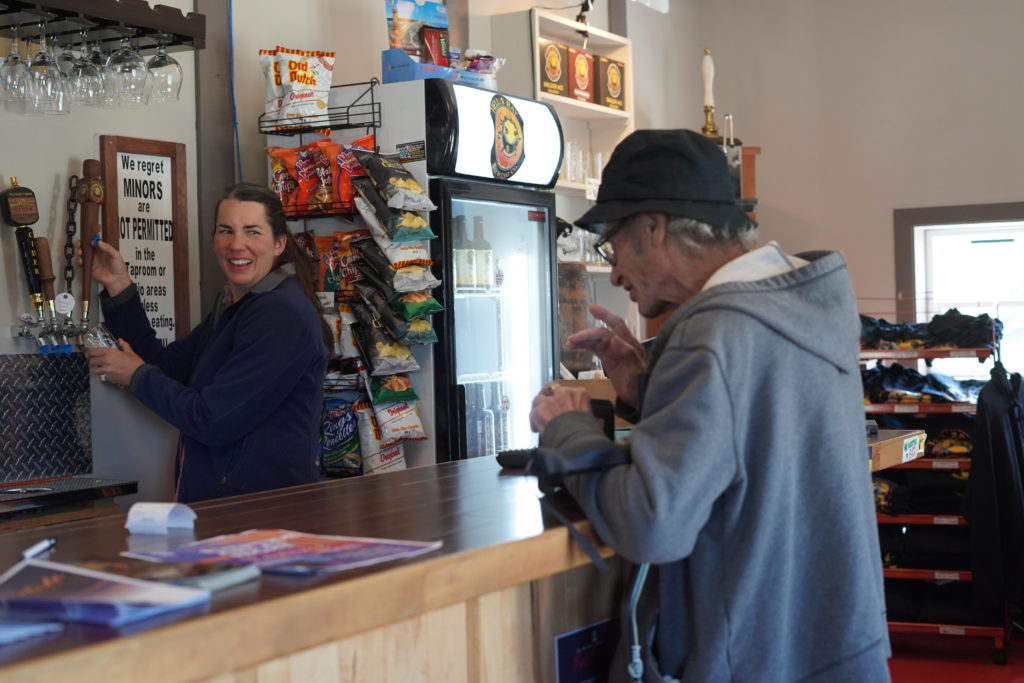
Despite setbacks and struggles, business was successful, and keeping up with demand turned out to be the biggest difficulty. The brewery expanded in the barn, employees were hired, and soon it was too big for their own property. After less than two years in business, Hell Bay found its new location on 38 Legion Street, in nearby Liverpool, and Mark was eventually able to switch to brewing full time.
Eight years after its founding, Hell Bay is a successful business employing local people and selling beer all over Nova Scotia. We continue to use home-made equipment, and we’re still owner-operated. There’s a grunge-appeal in our brewery that customers find authentic and attractive.
“You won’t find us waxing romantic about the rugged coastlines or quaint fishing villages around us – we live here, and that’s just part of our lives,” they explain.
On this particular visit, they’re playing an integral part in others people’s lives, too. Gerry followed his family and moved from Scotland to the town of Liverpool back in the 70s. In 2019, he comes into Hell Bay Brewing each day for a pint of the brewery’s Pilsner. Although that popular beer had run out on this visit, he settled for a Porter and enjoyed it just as much.
“Coming here is part of my day, it’s what I do,” he says.
Hell Bay is an integral part of Gerry’s life. And it’s the role in people’s lives, in the wider community, that rings loud from taking in the broad, diverse spectrum of breweries that make up the patchwork that is Nova Scotia.
Be it a concert venue, dinner destination, exhibition space or just the place for a great beer, breweries are leaving an indelible mark on the province’s landscape, and life is all the better for it.

